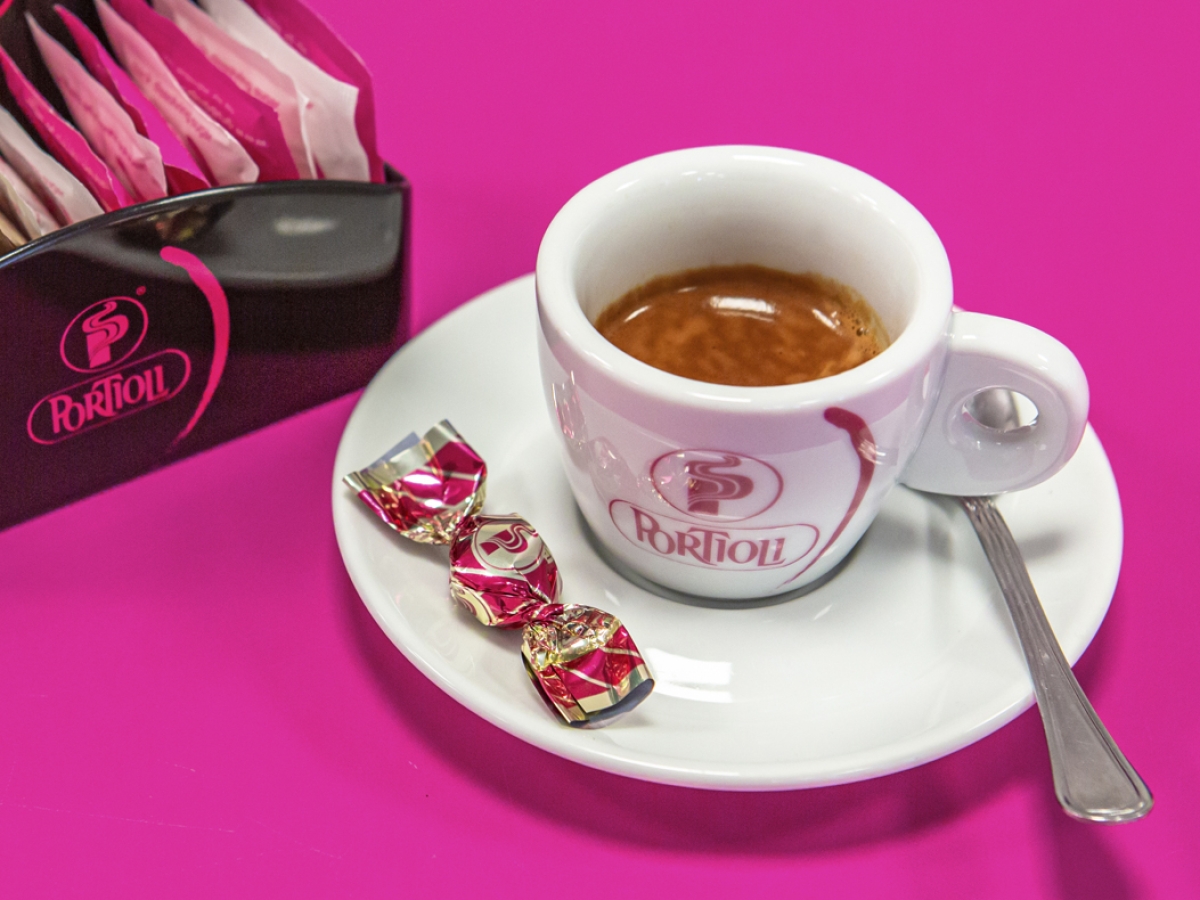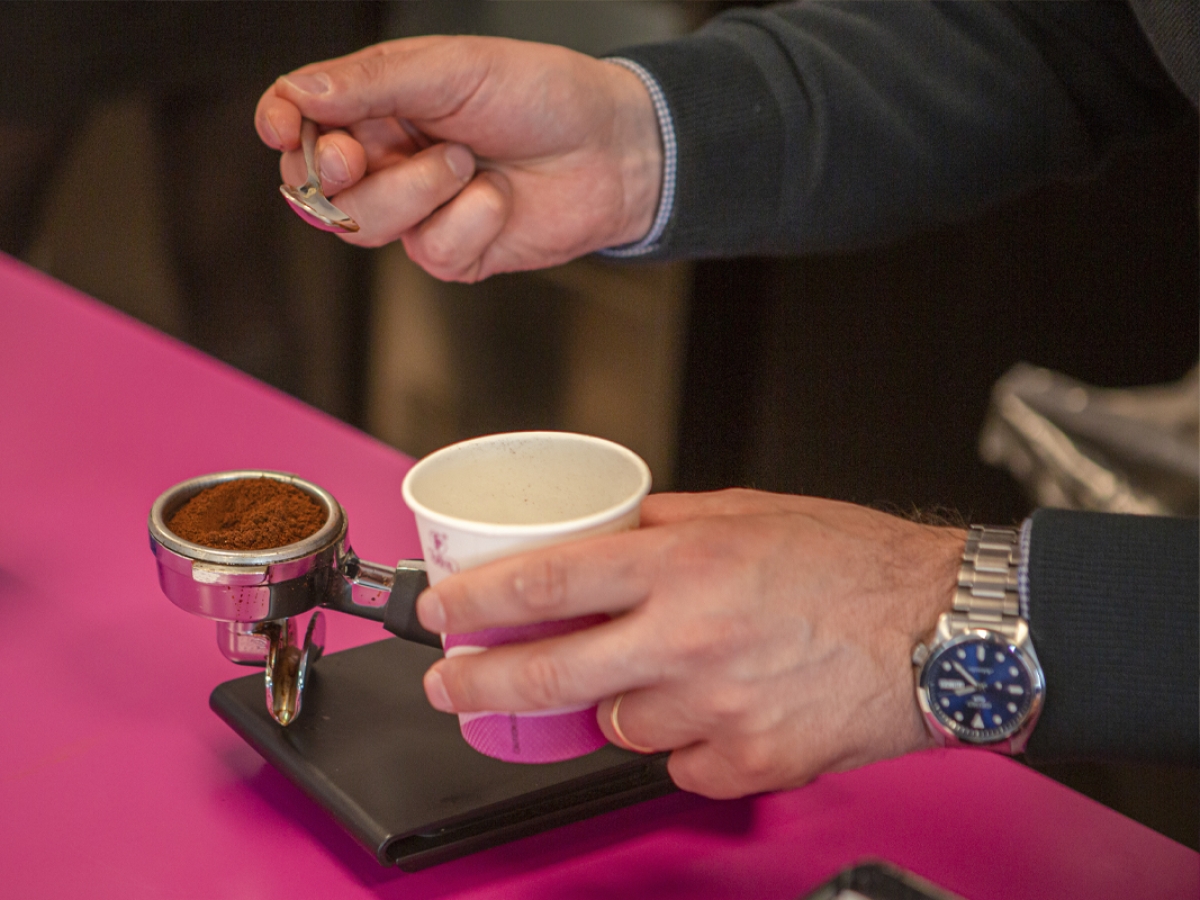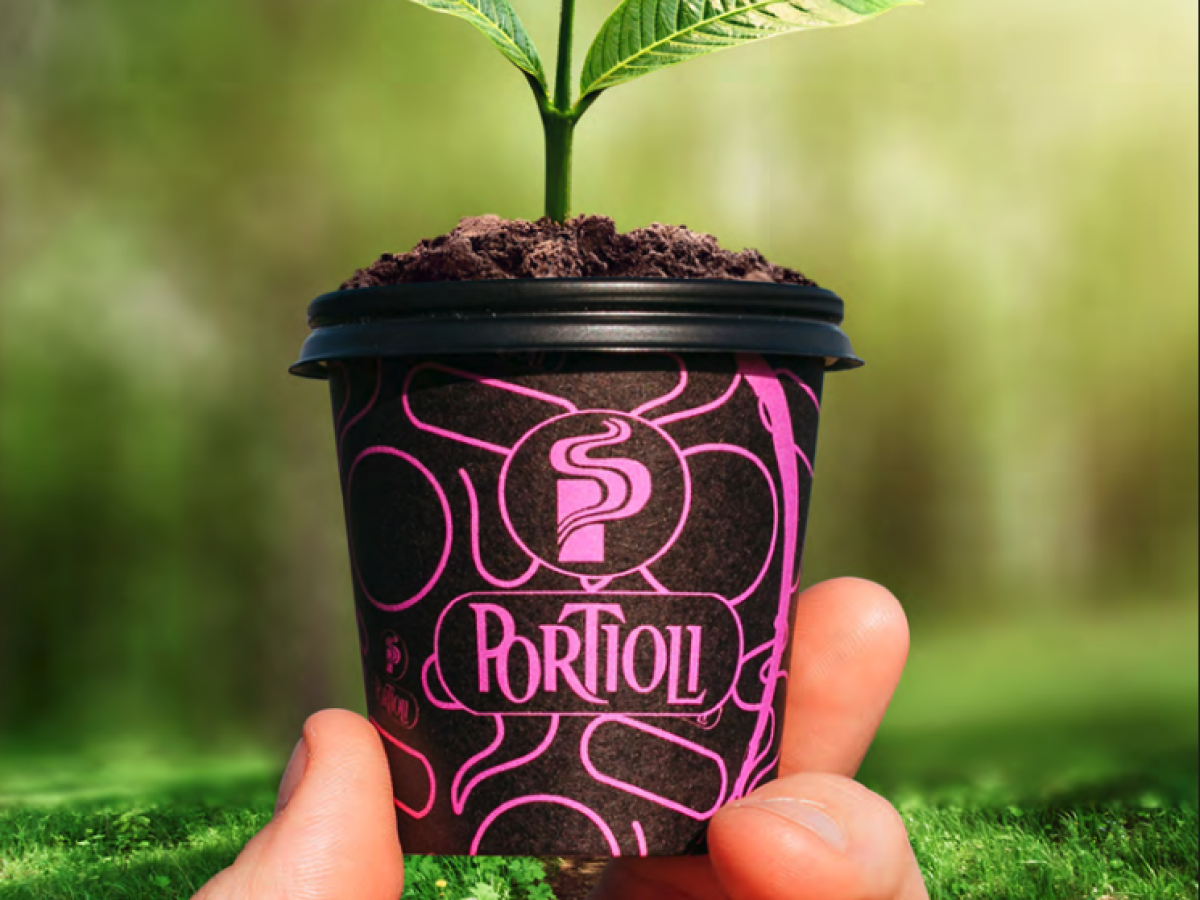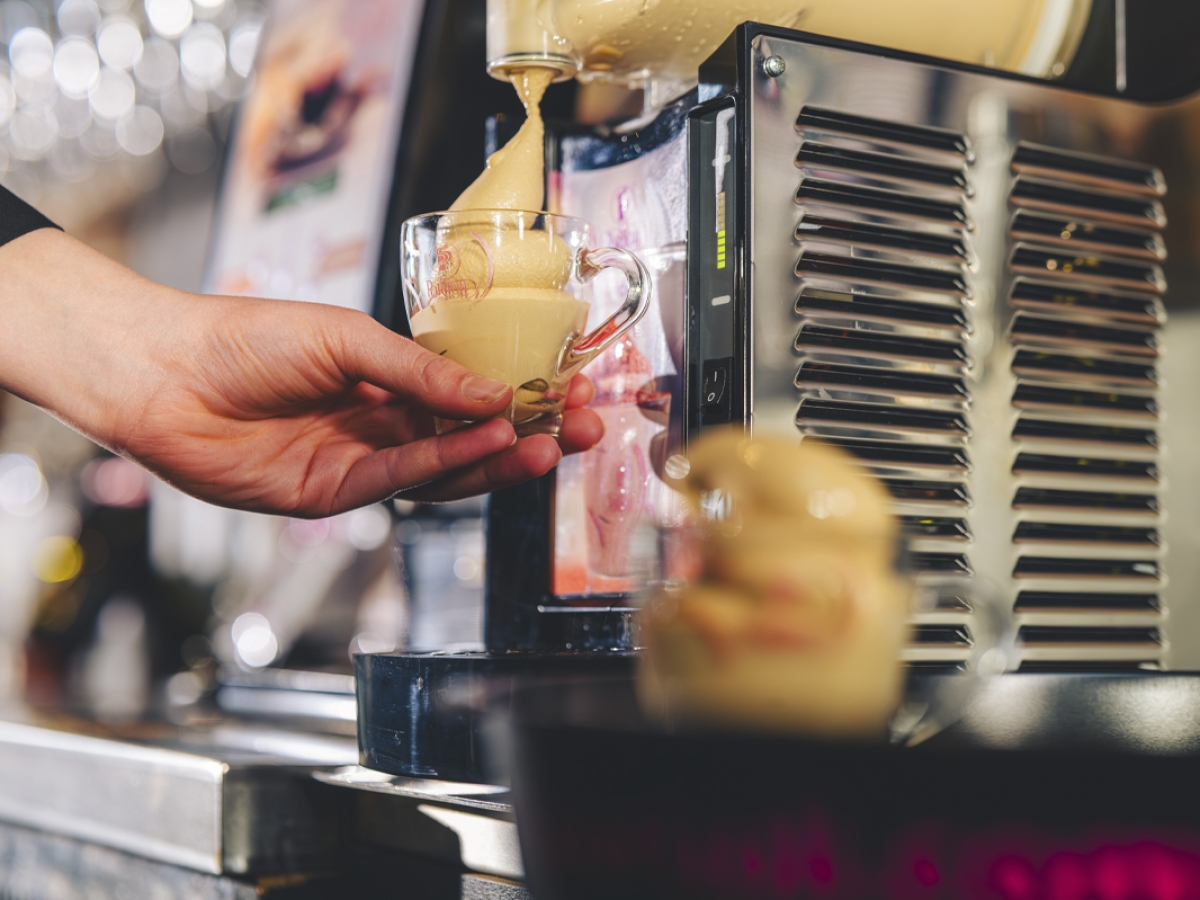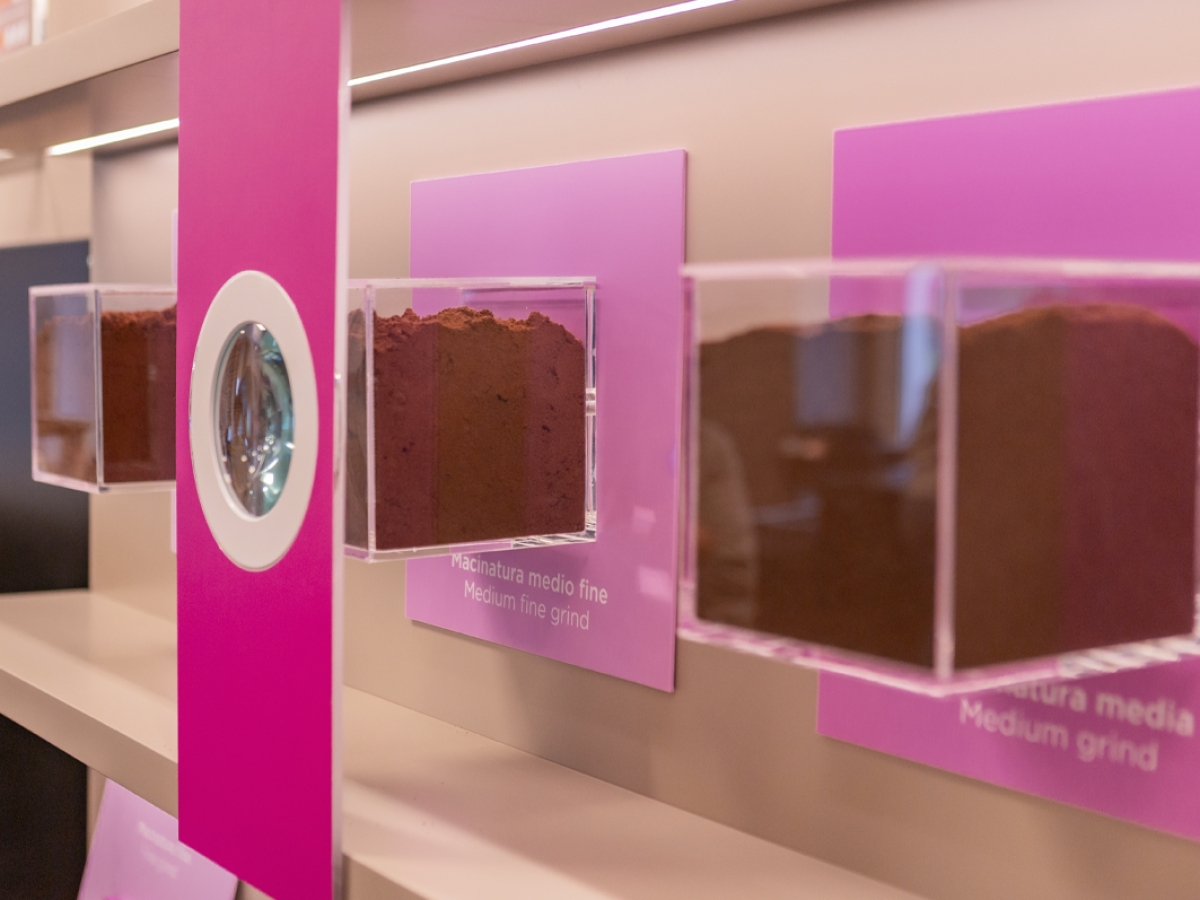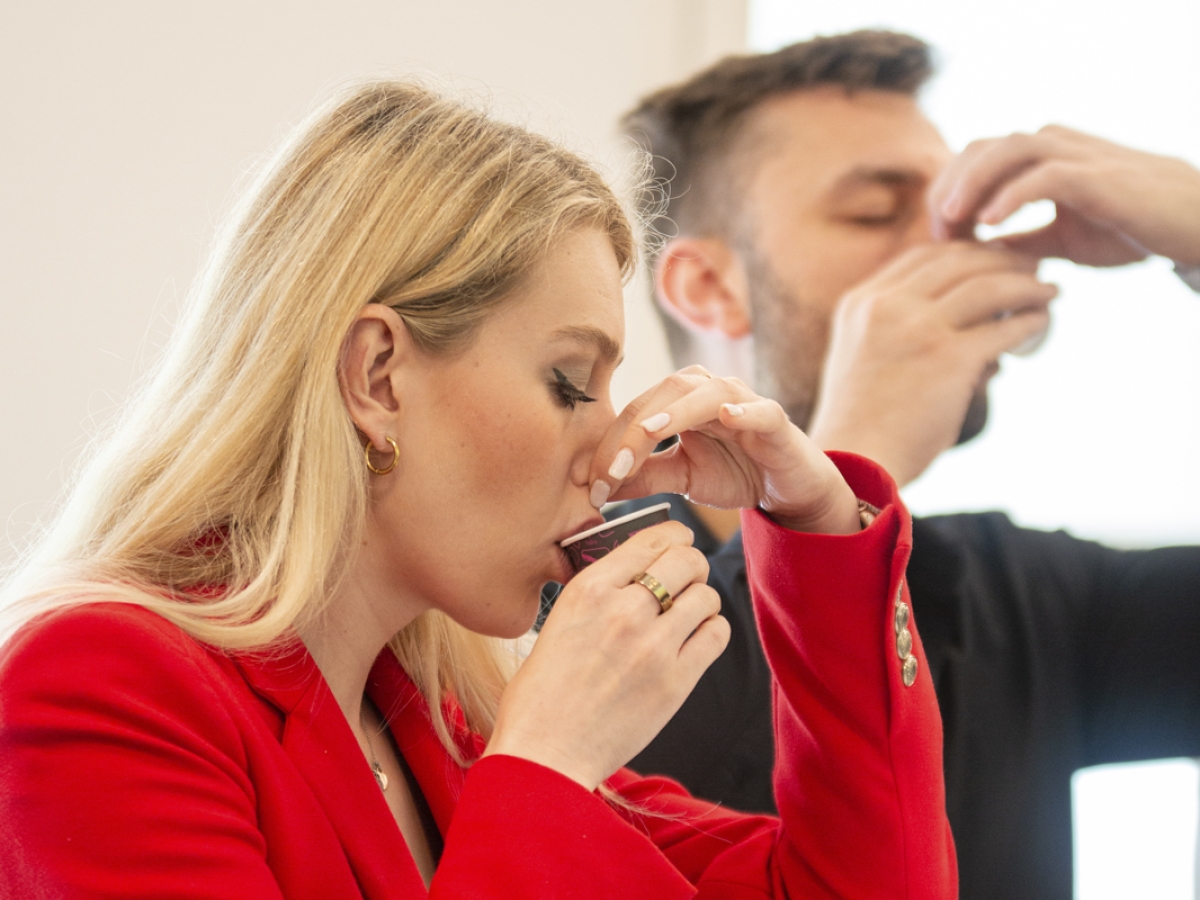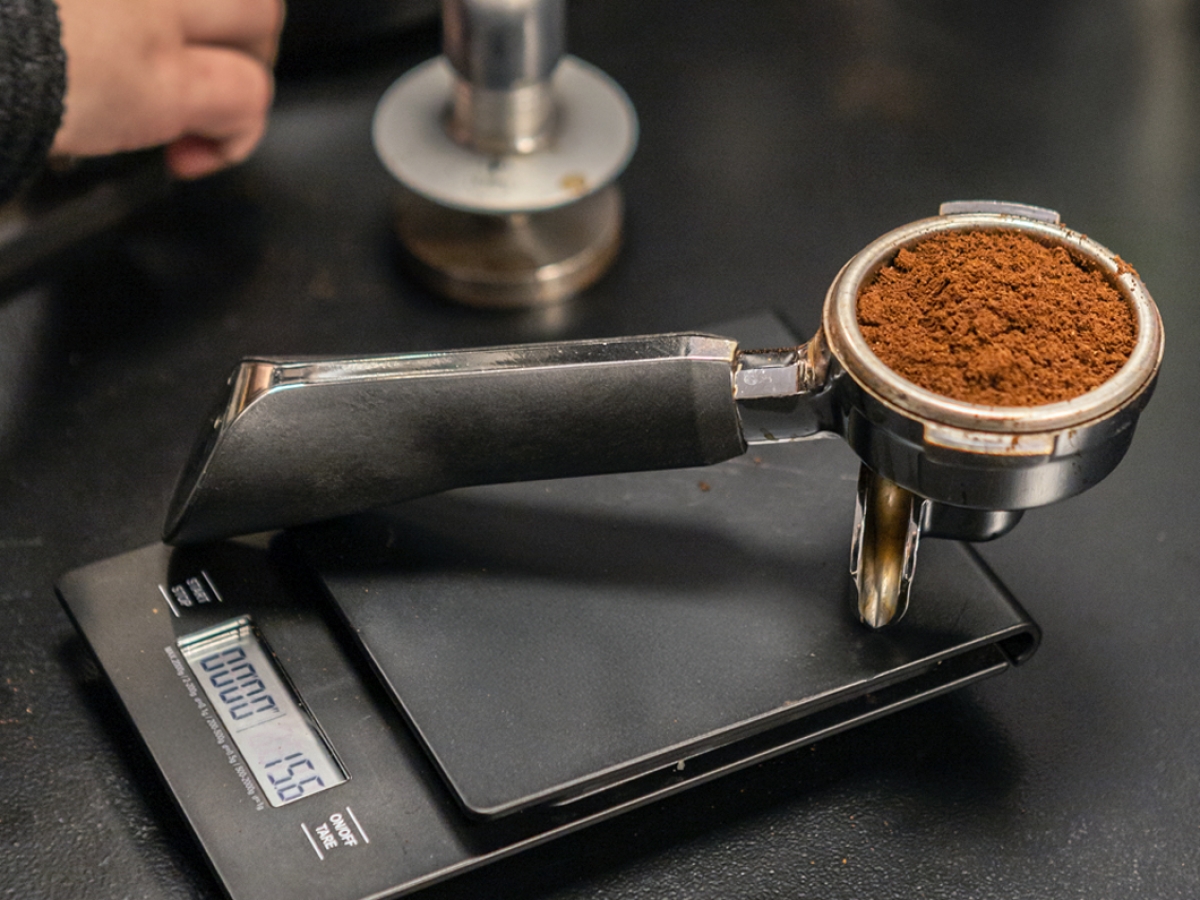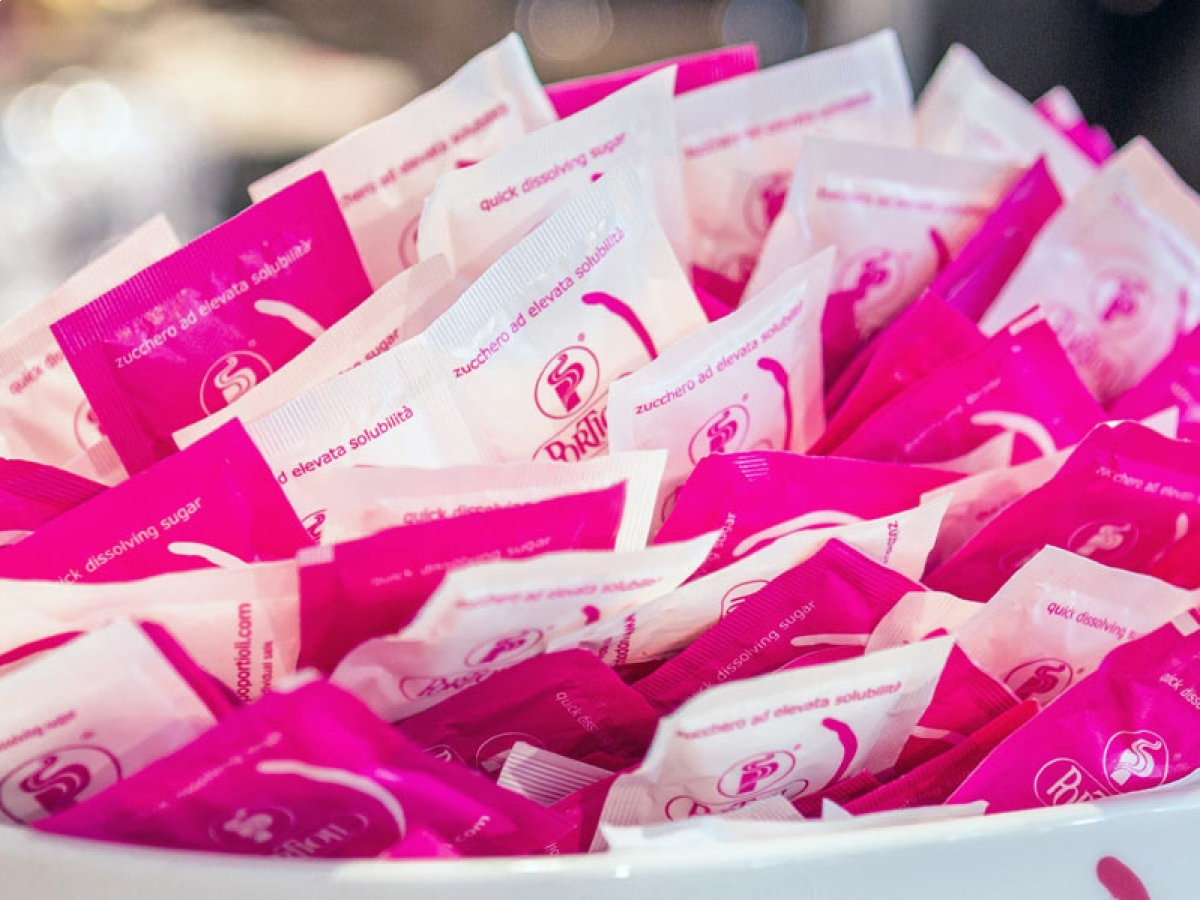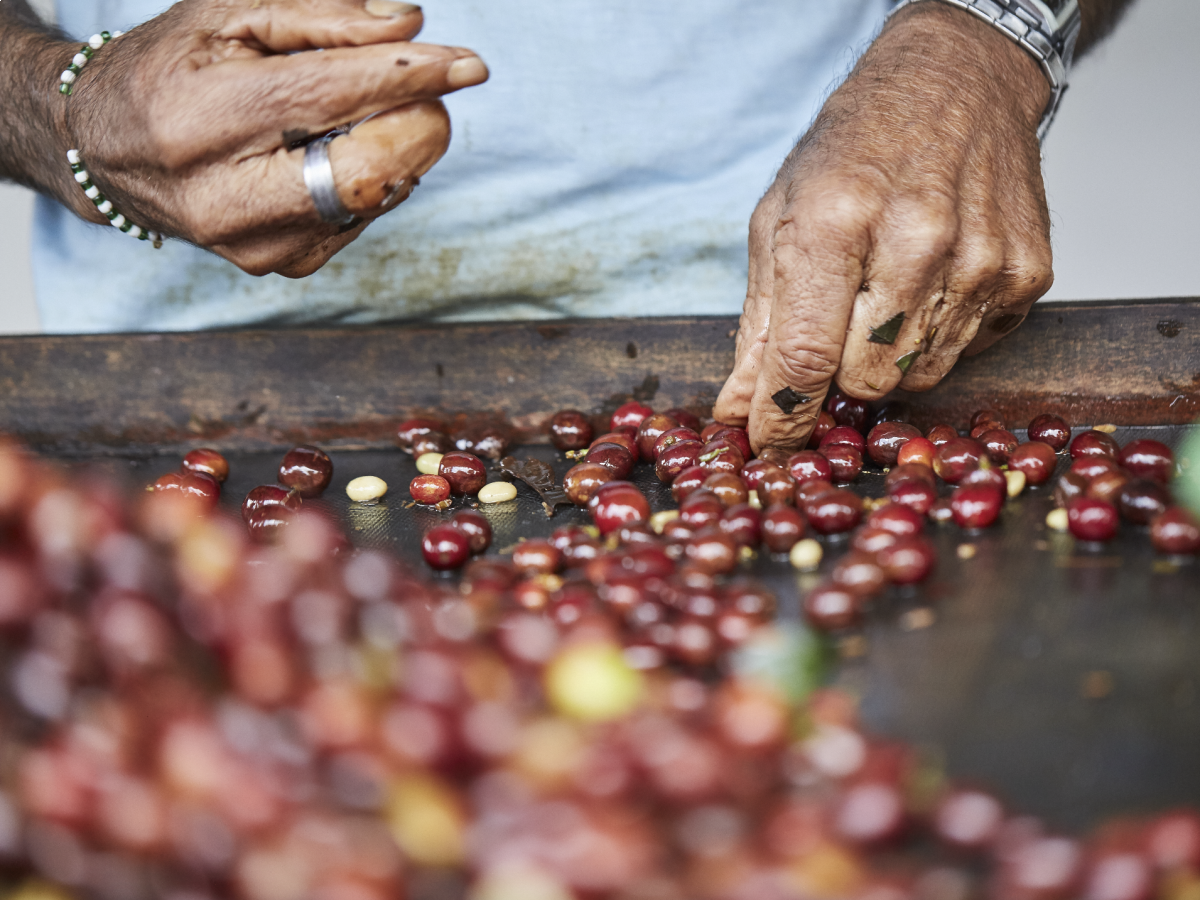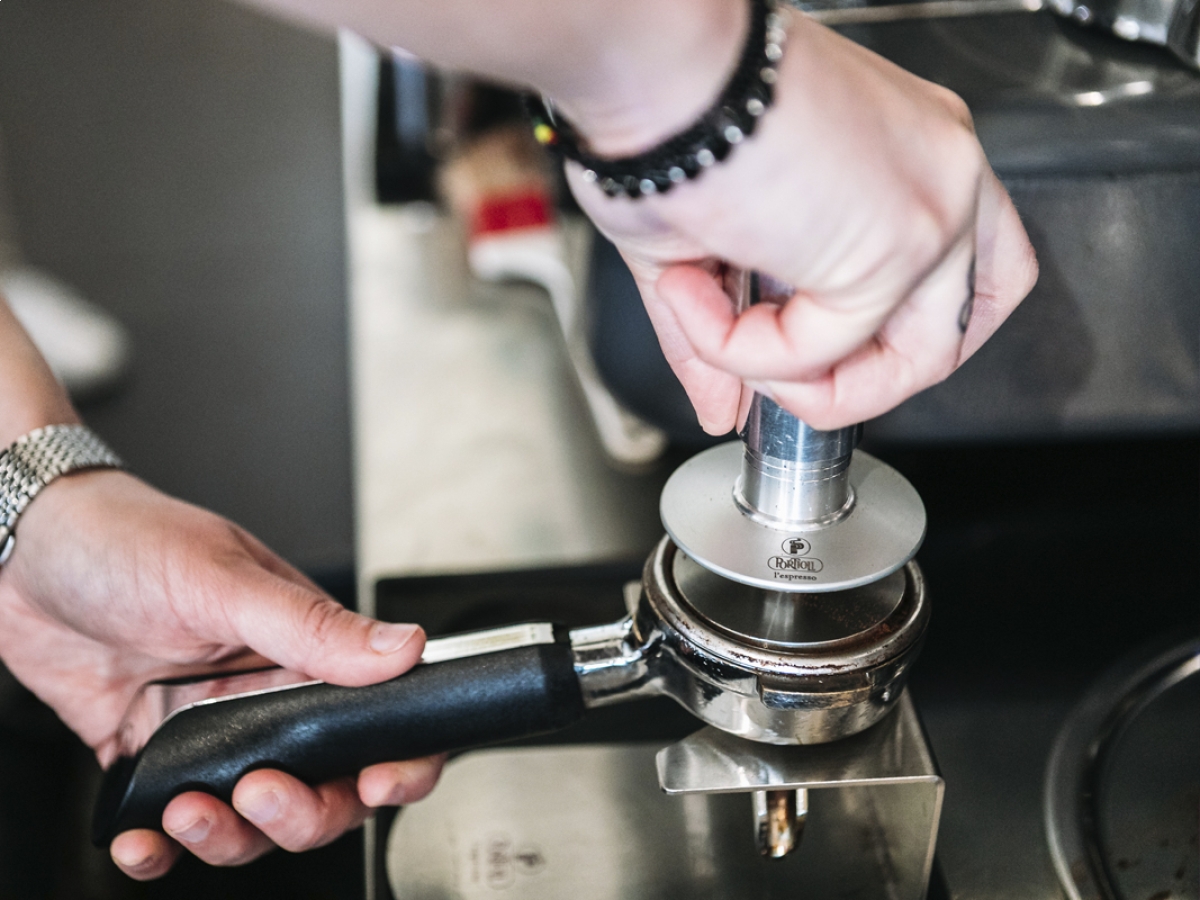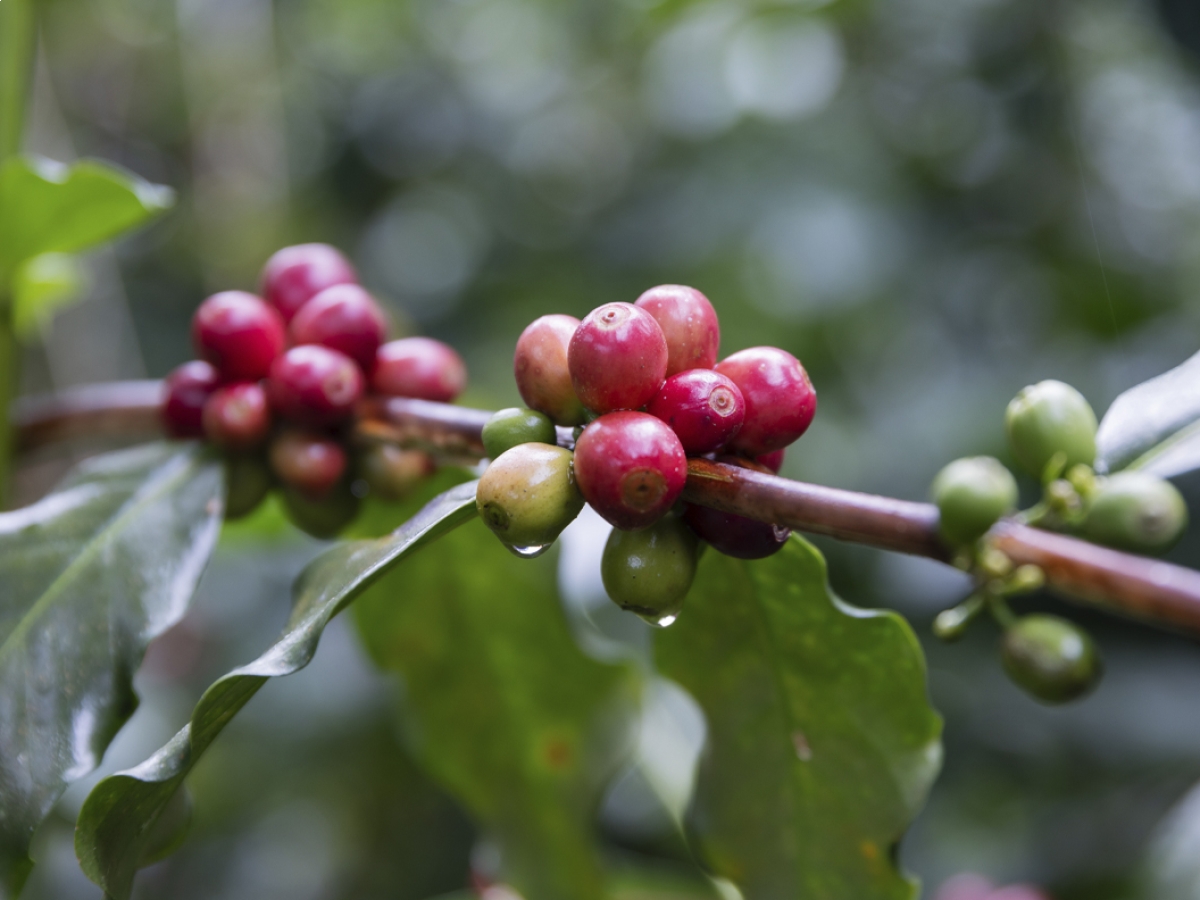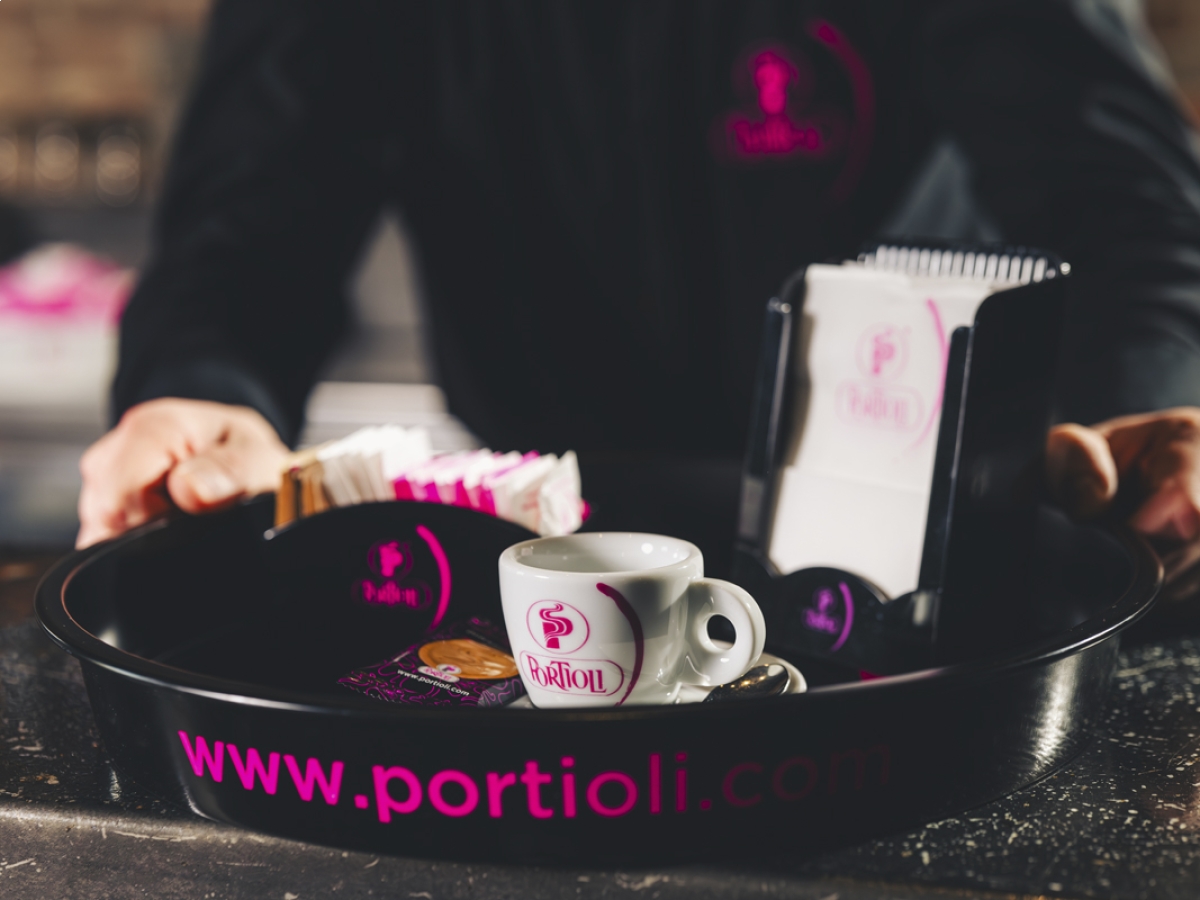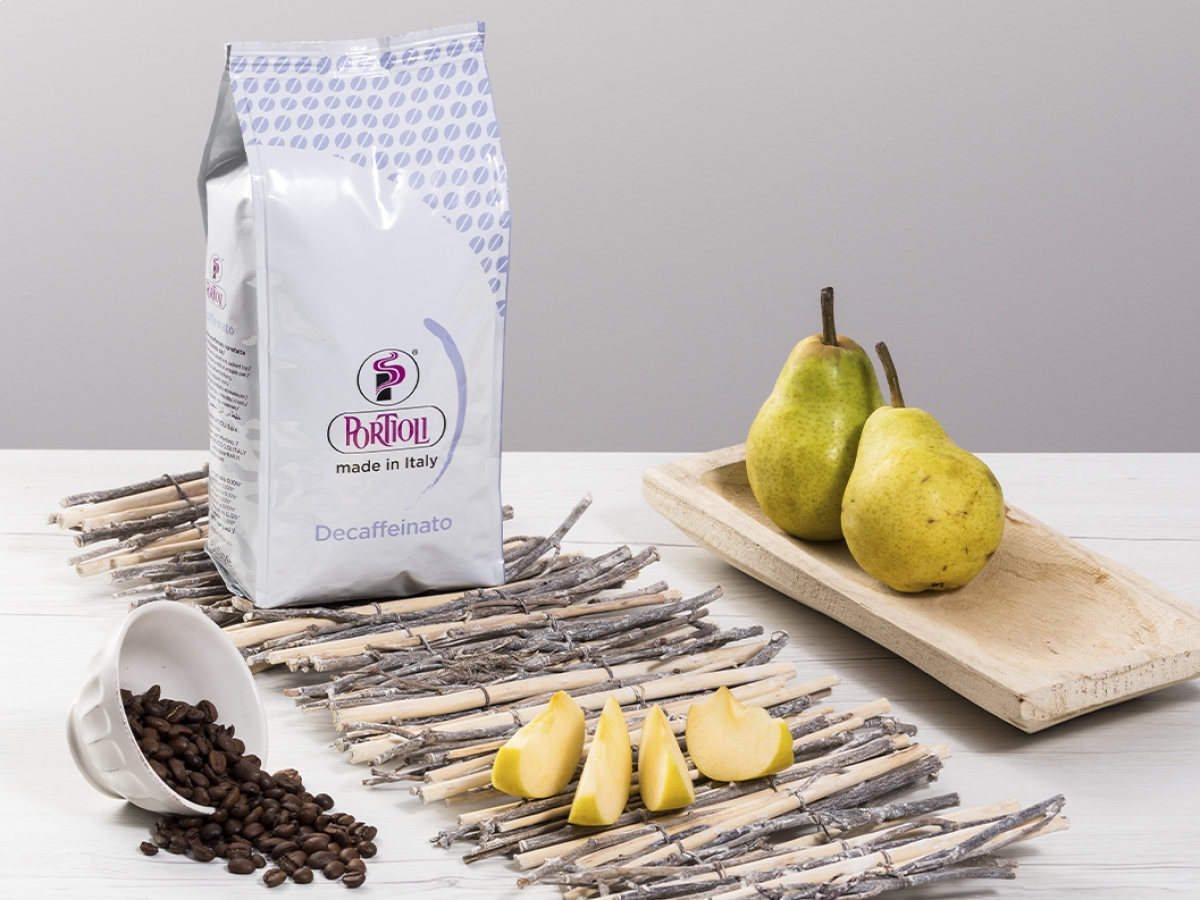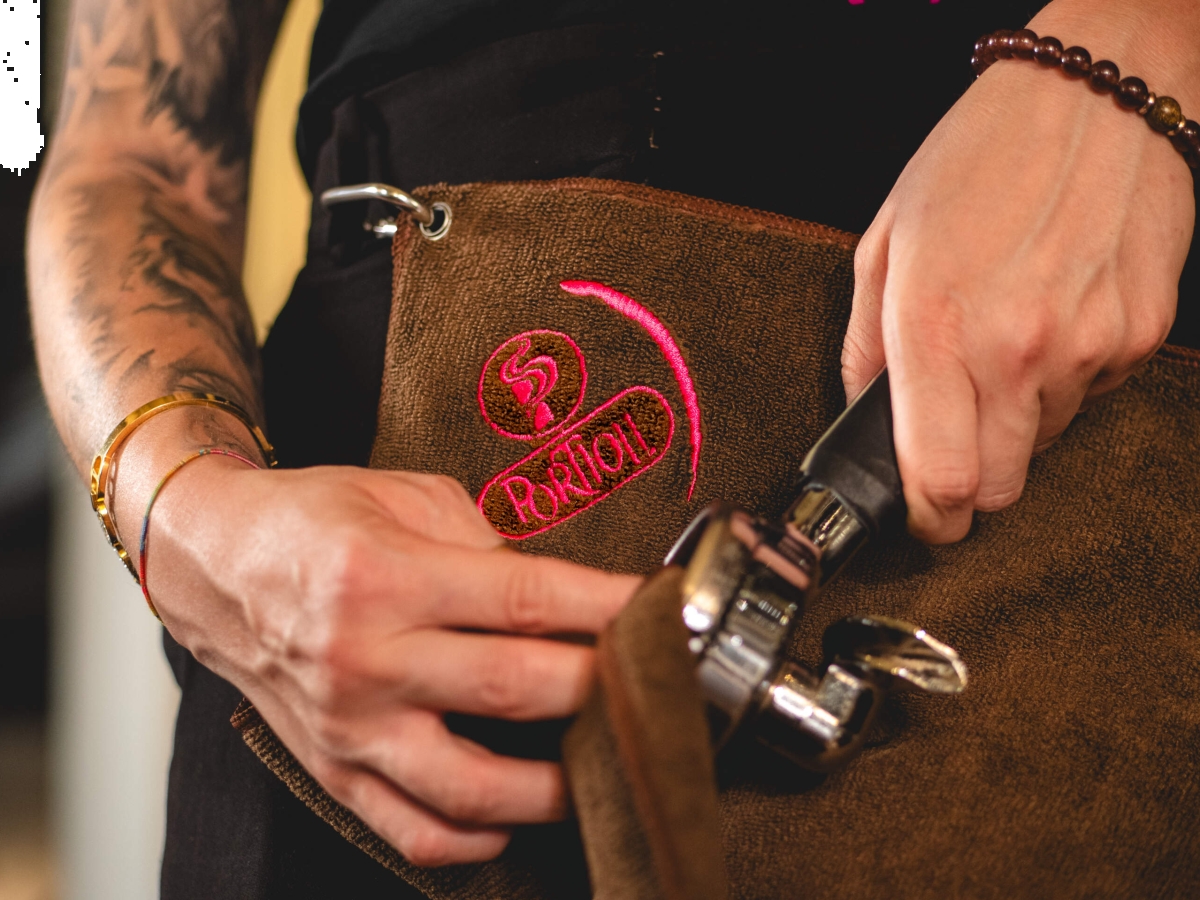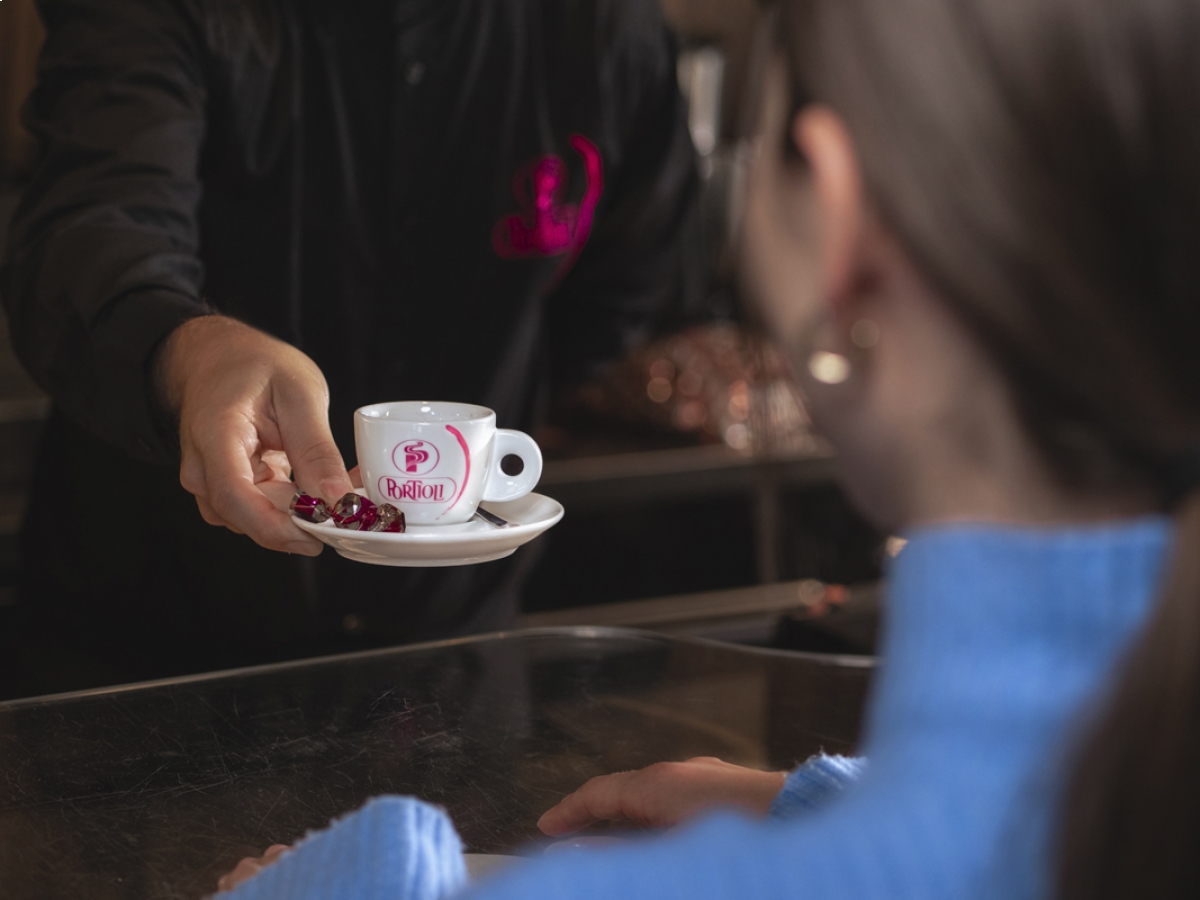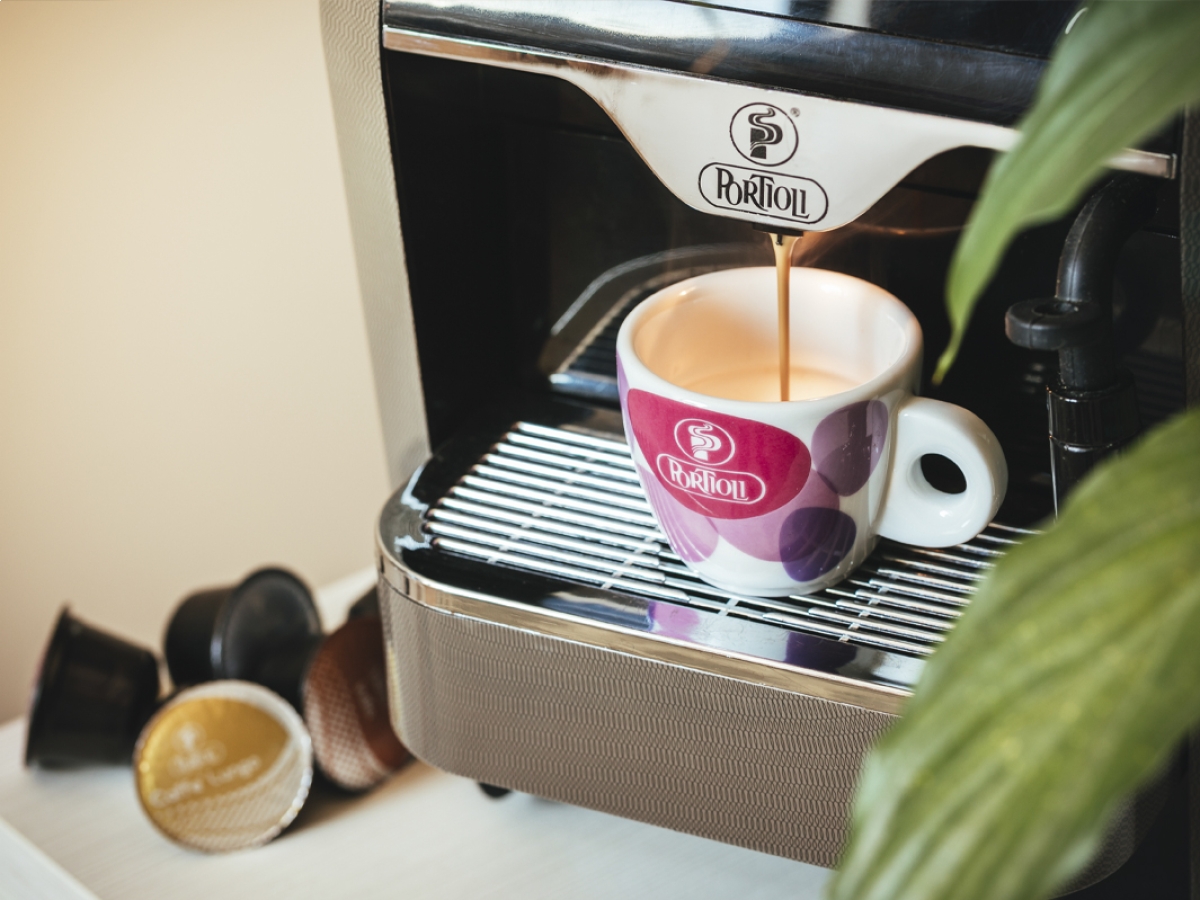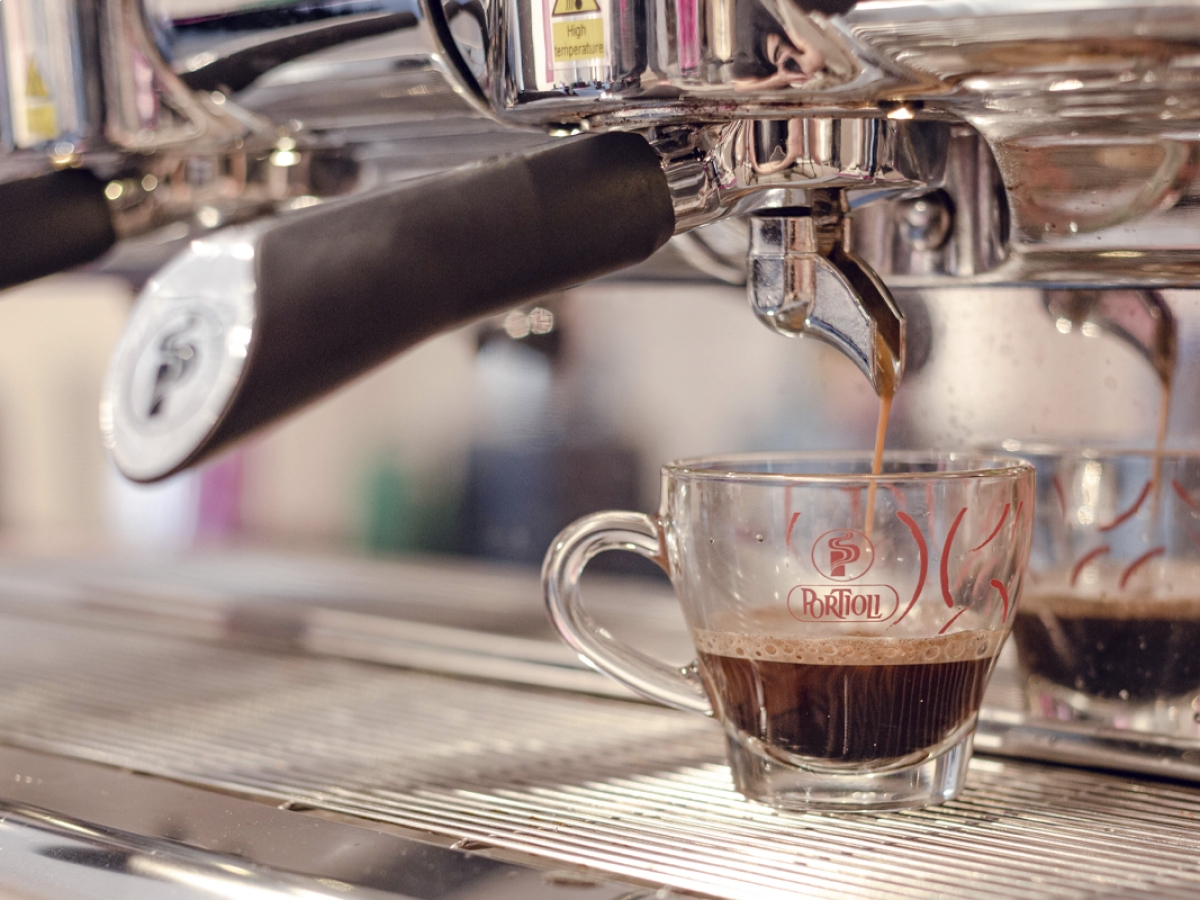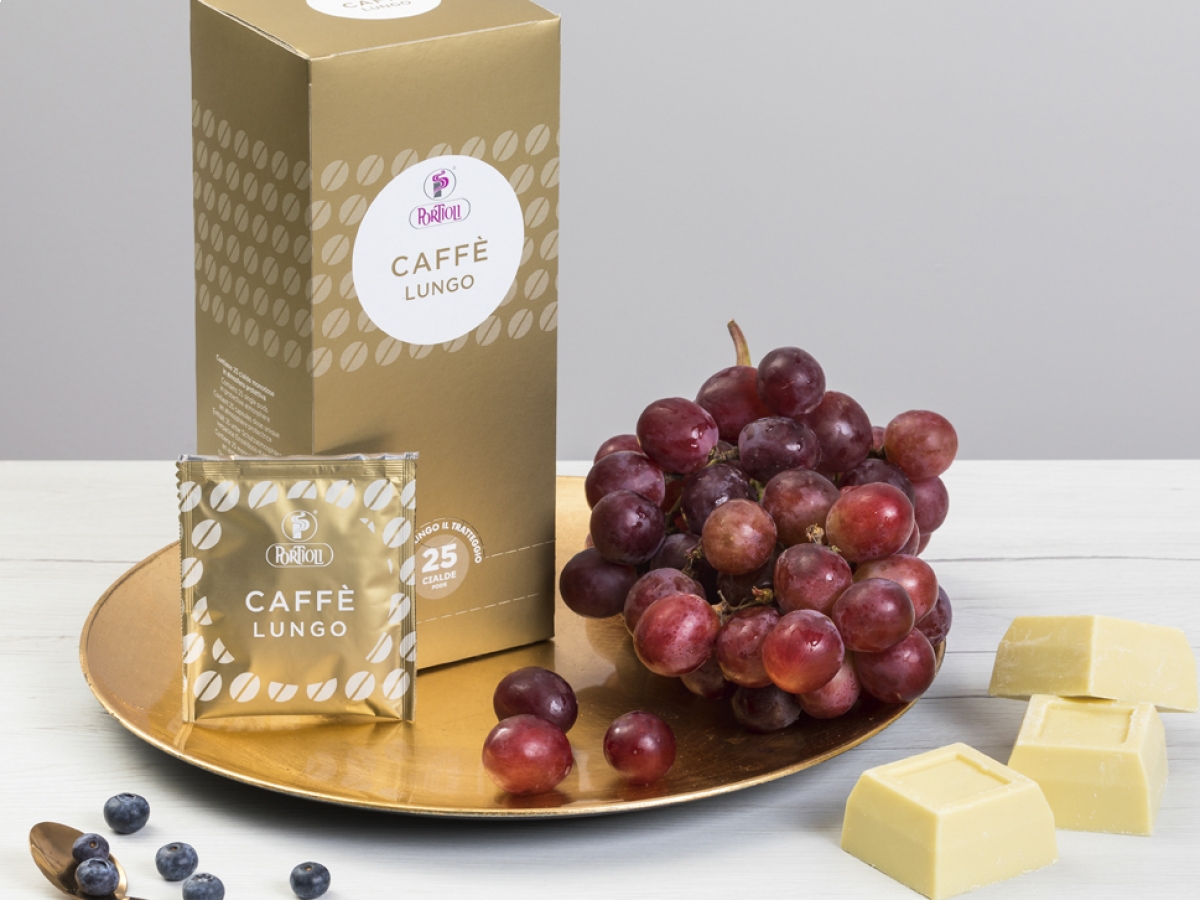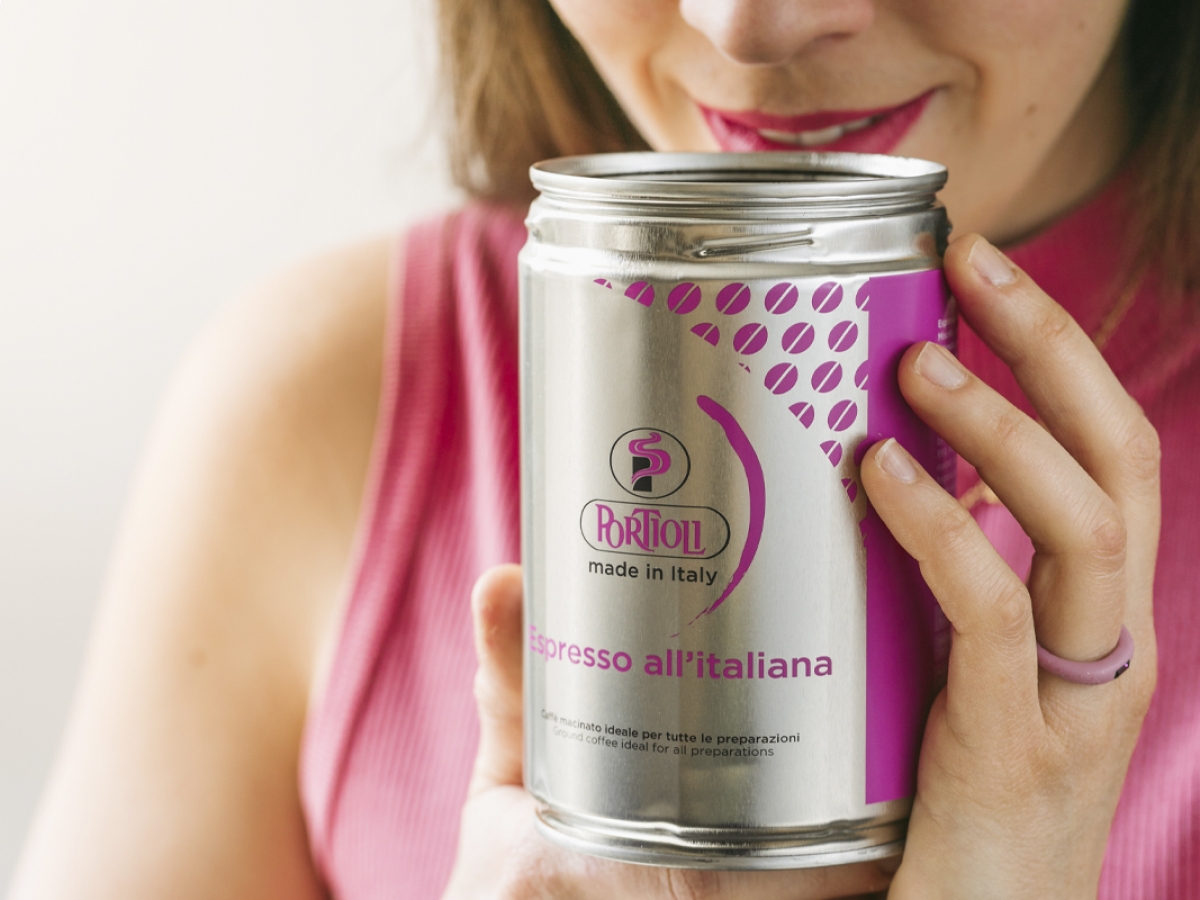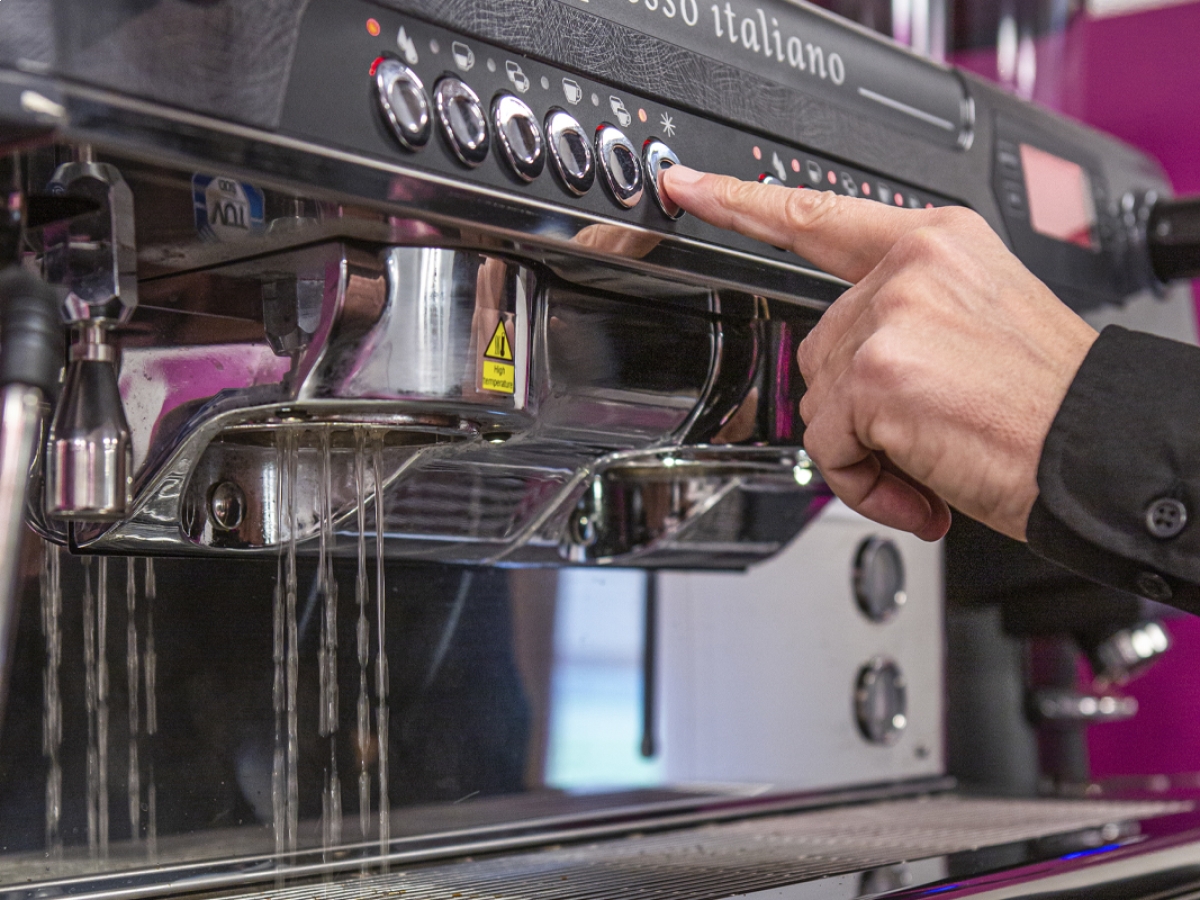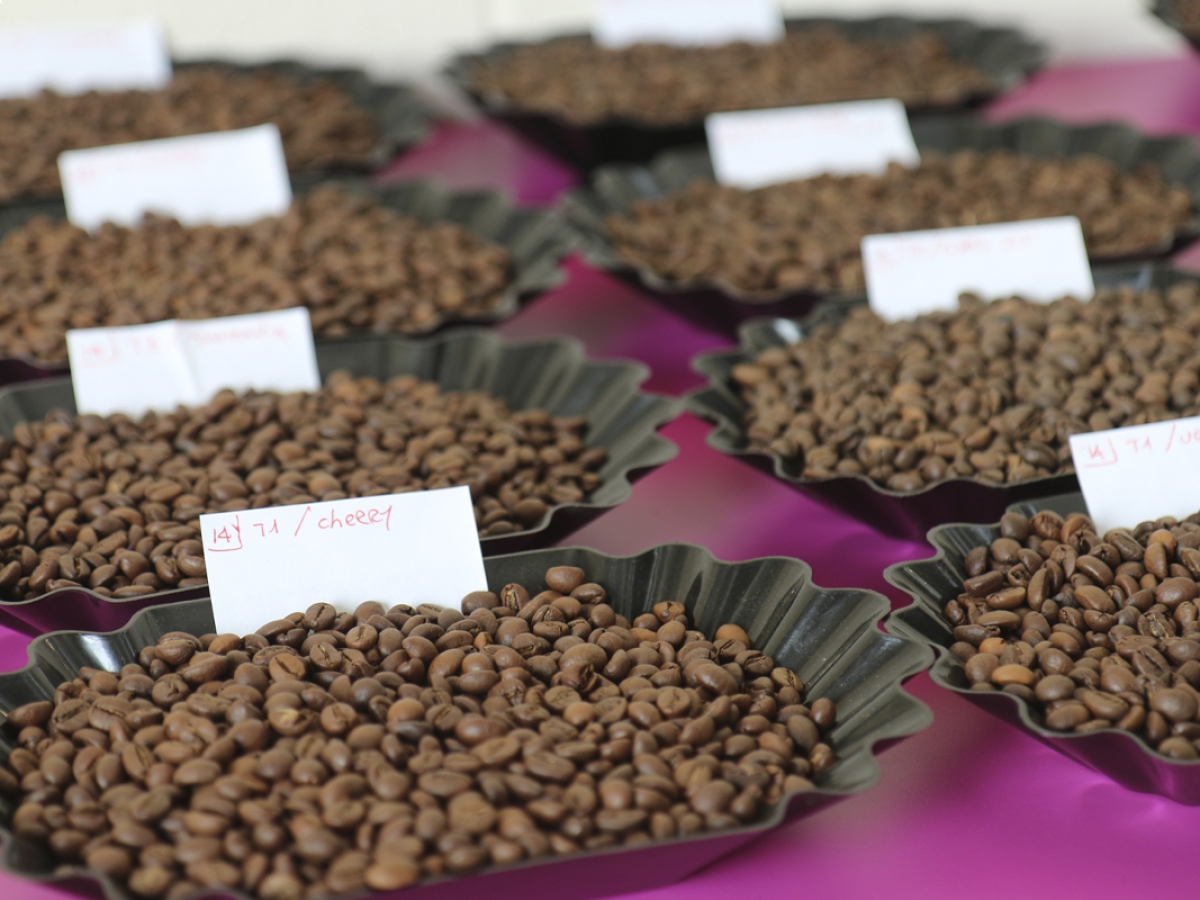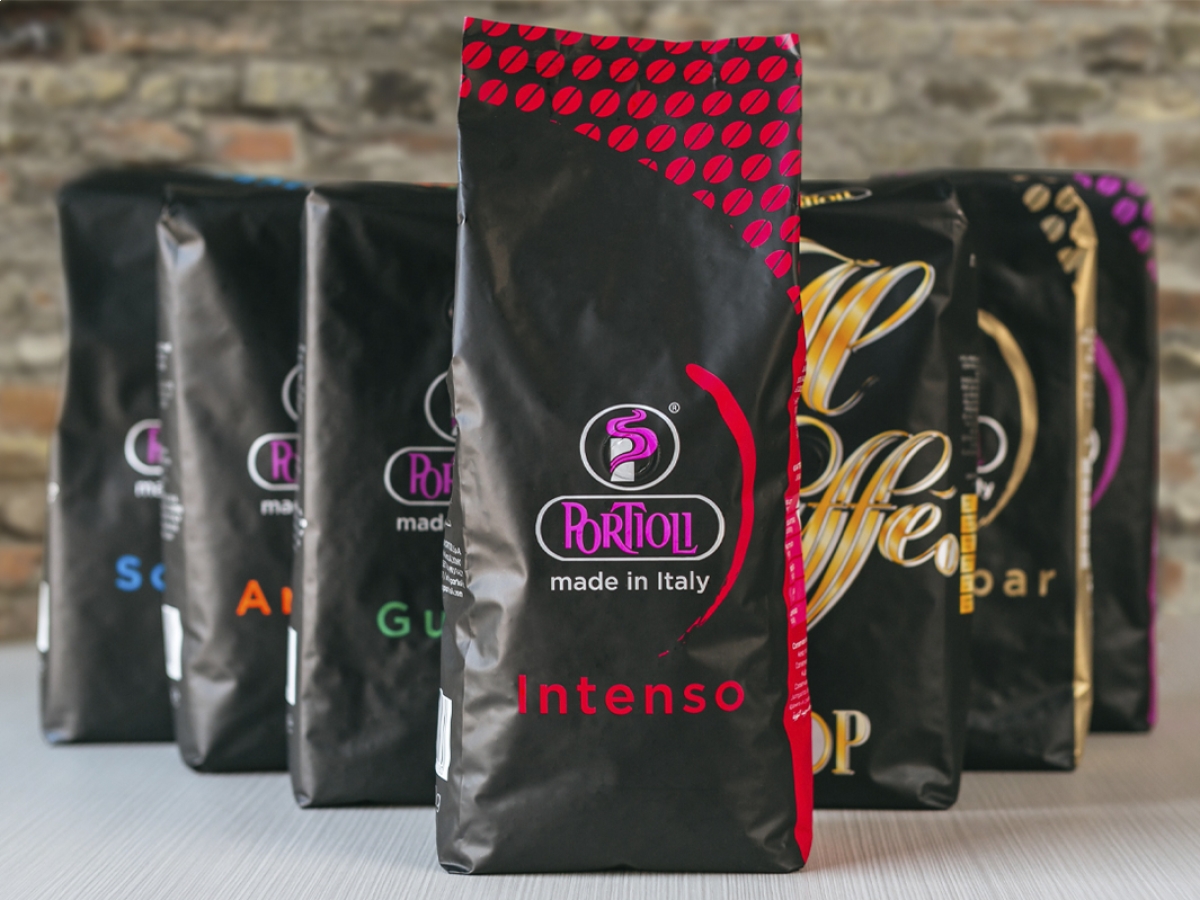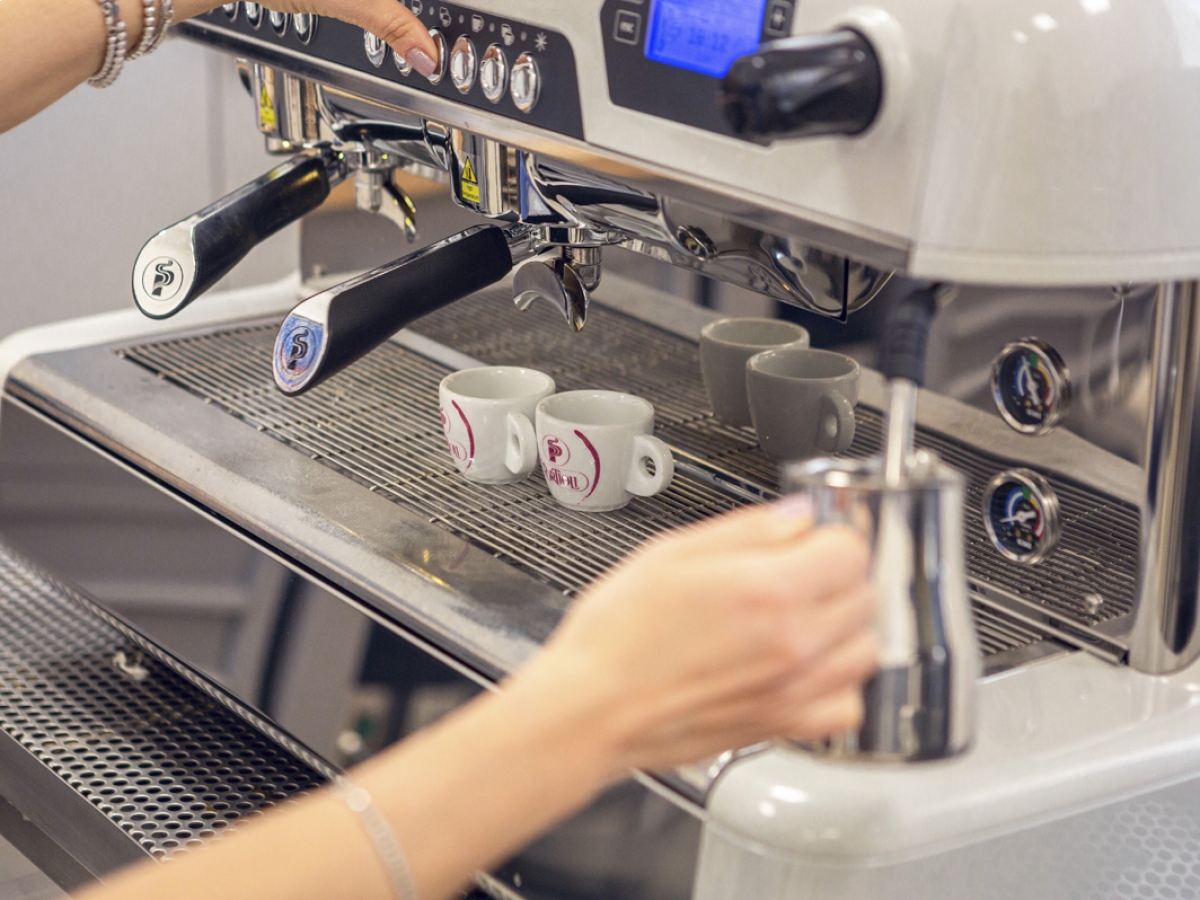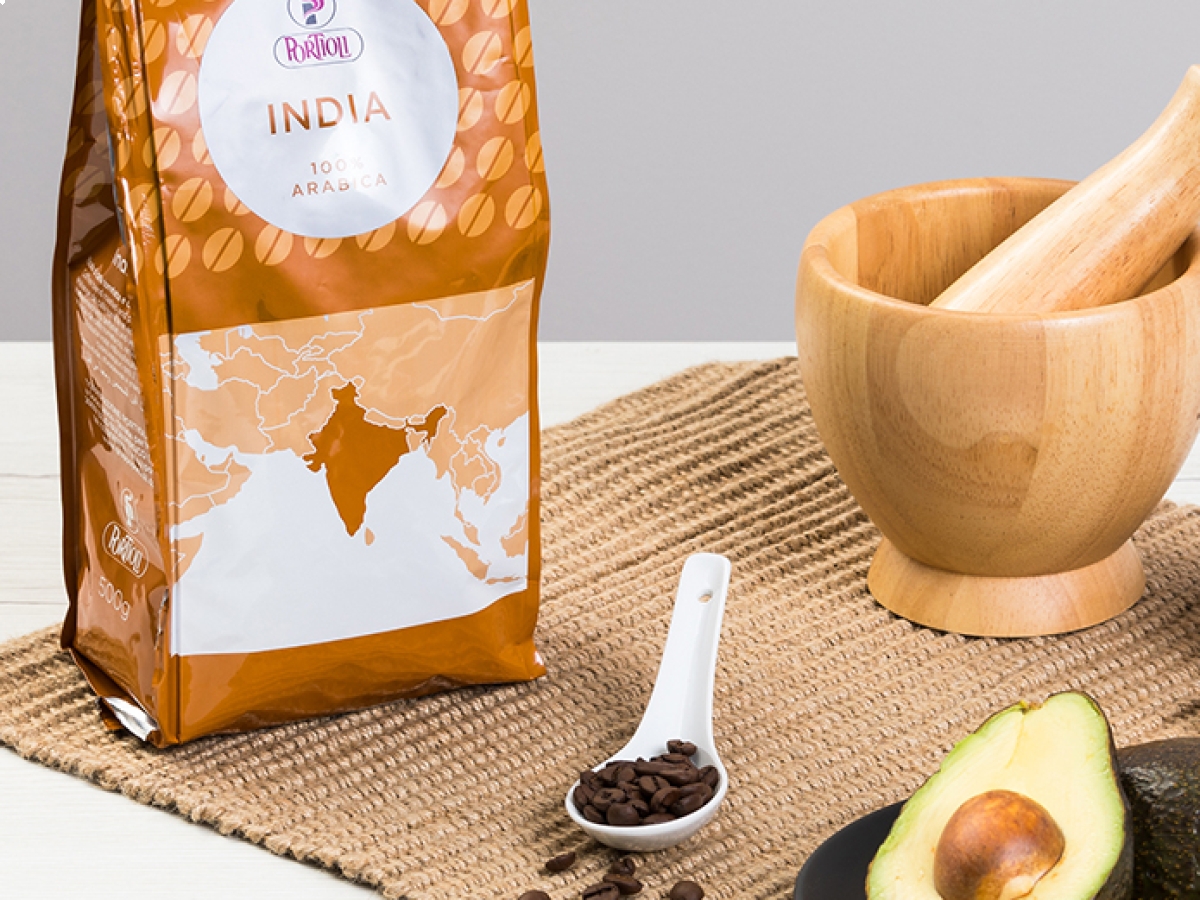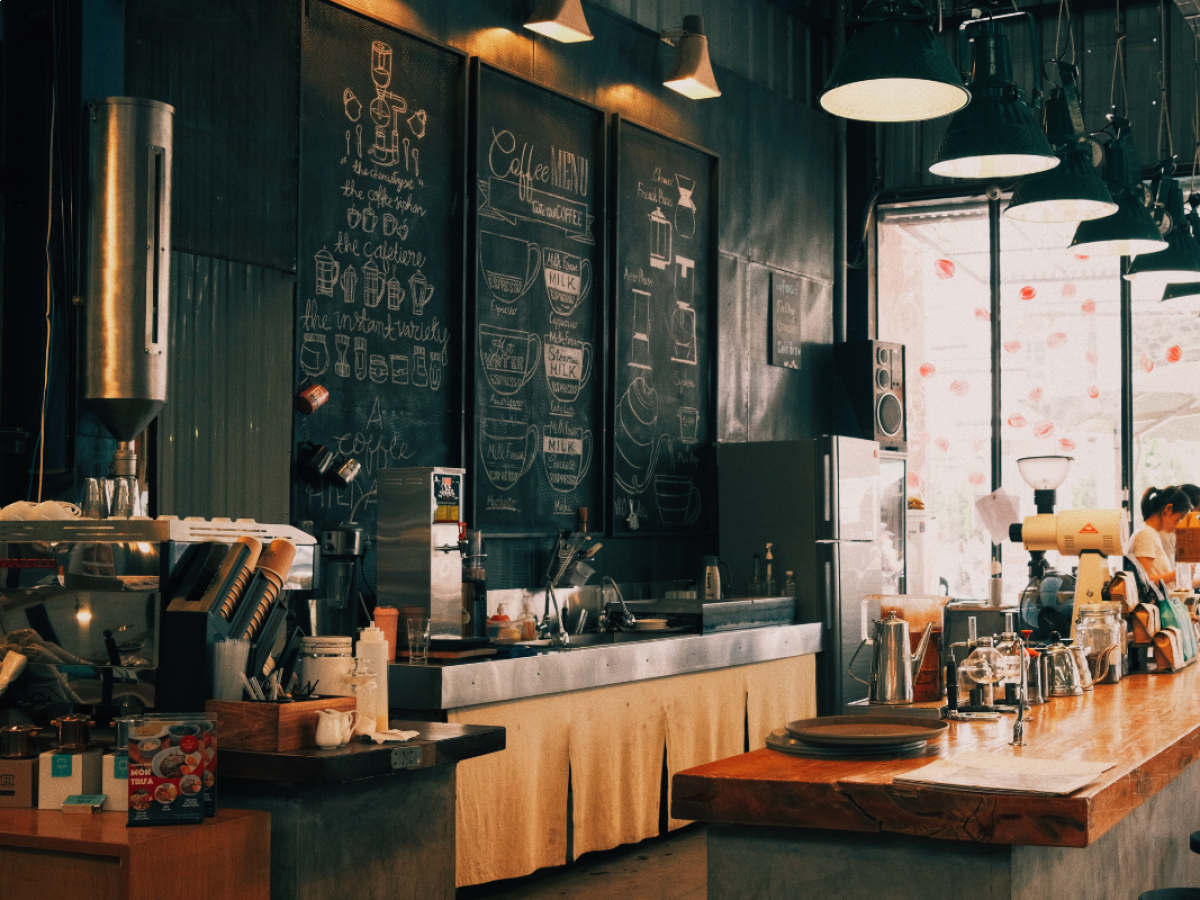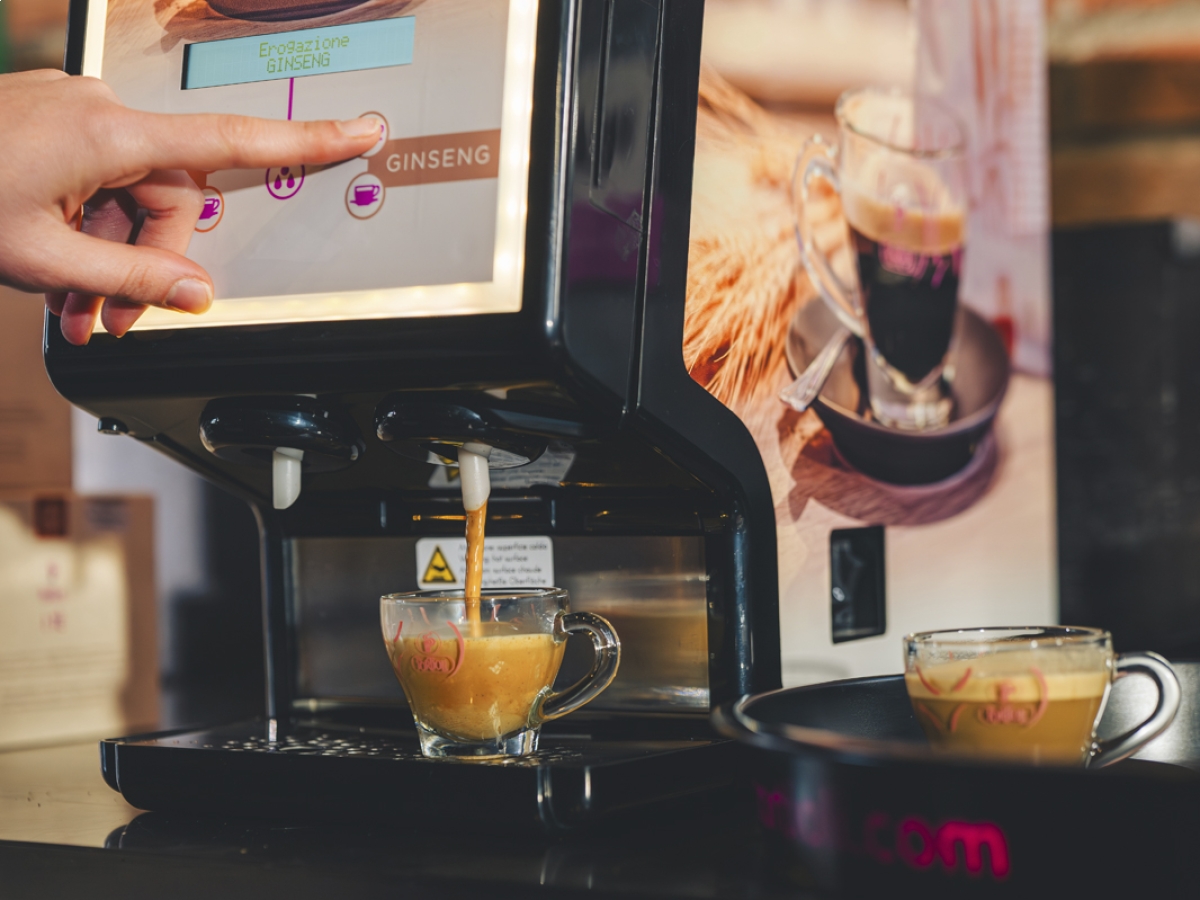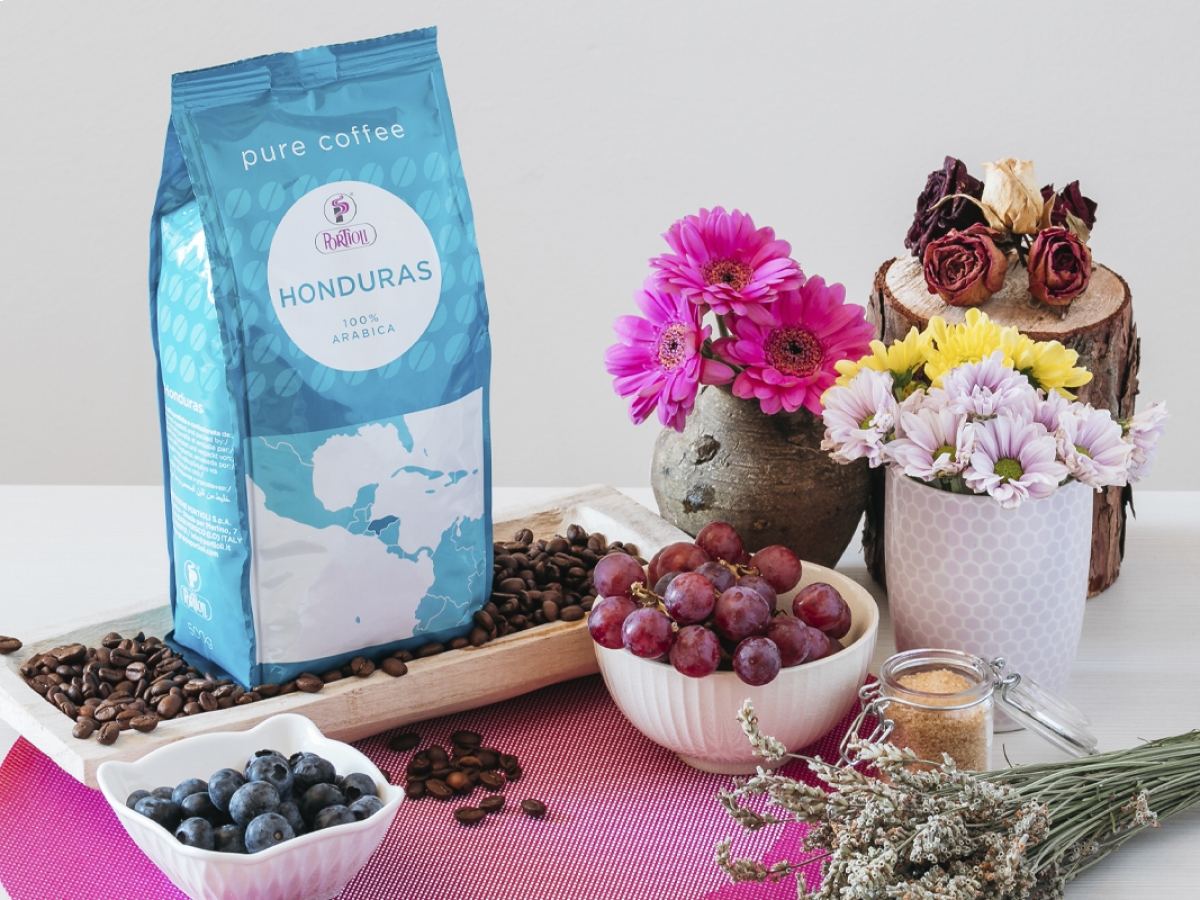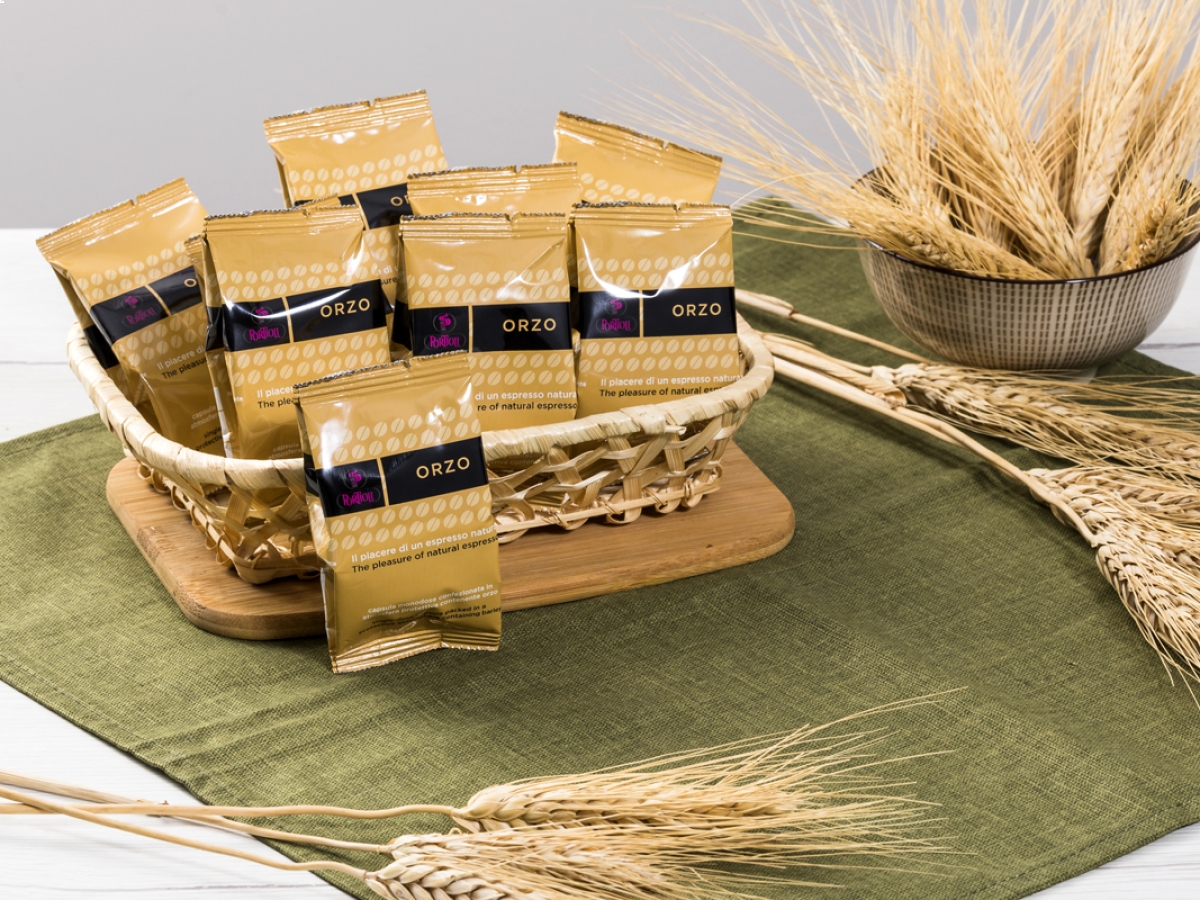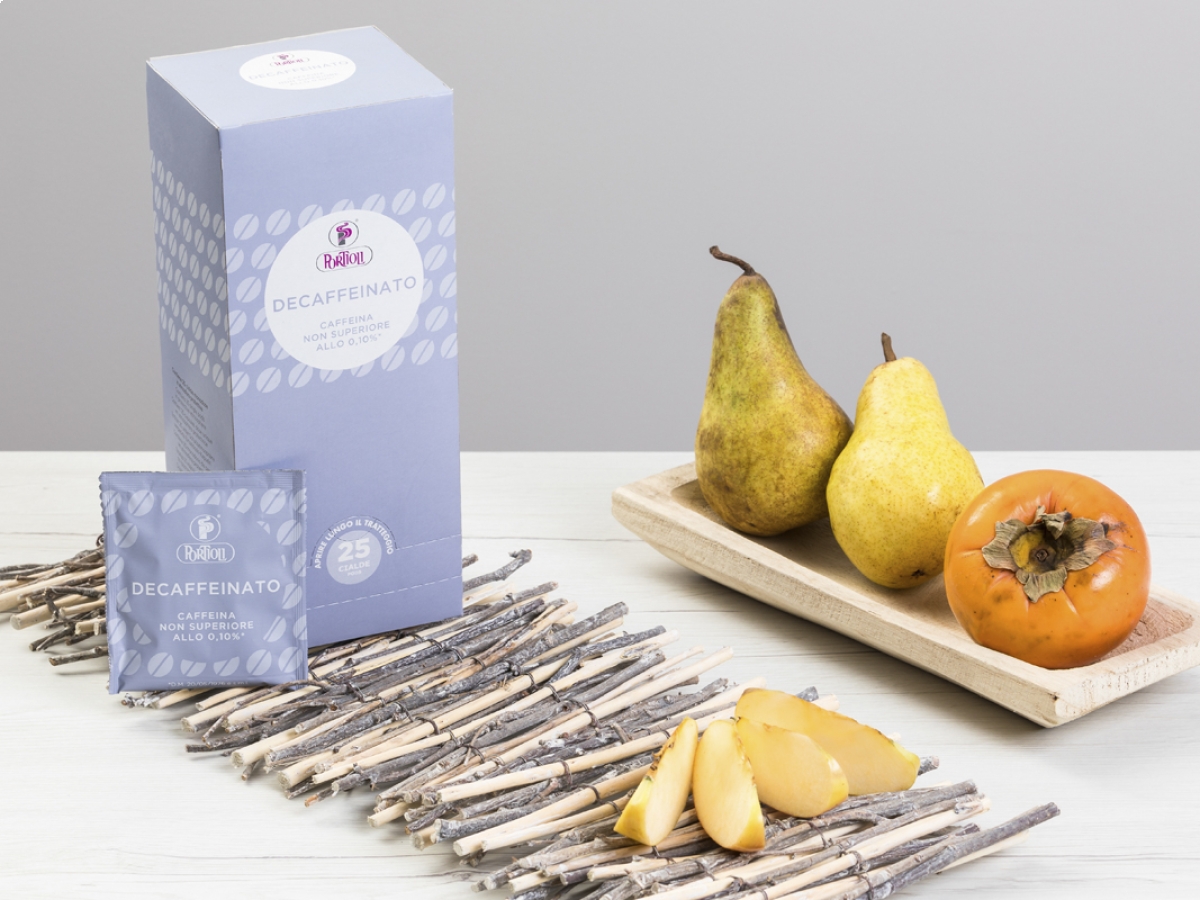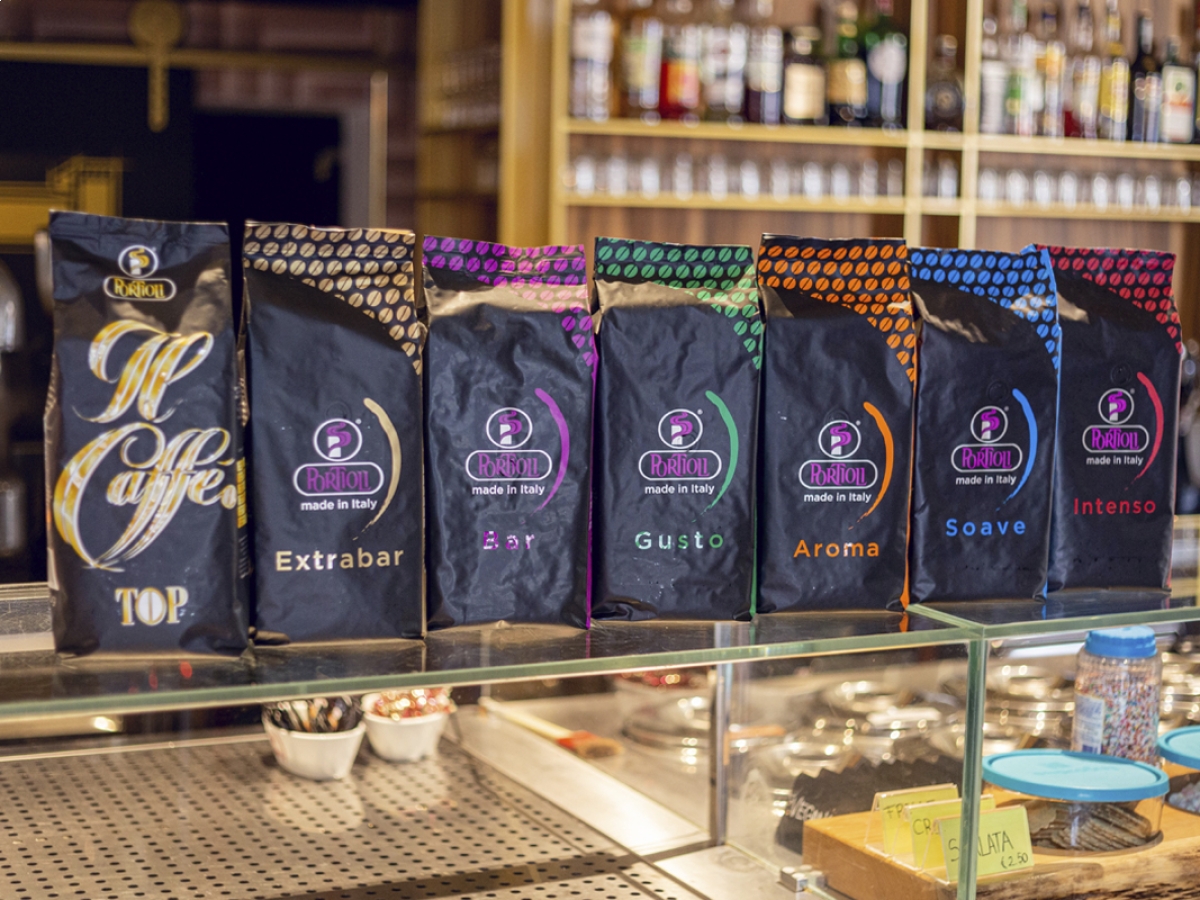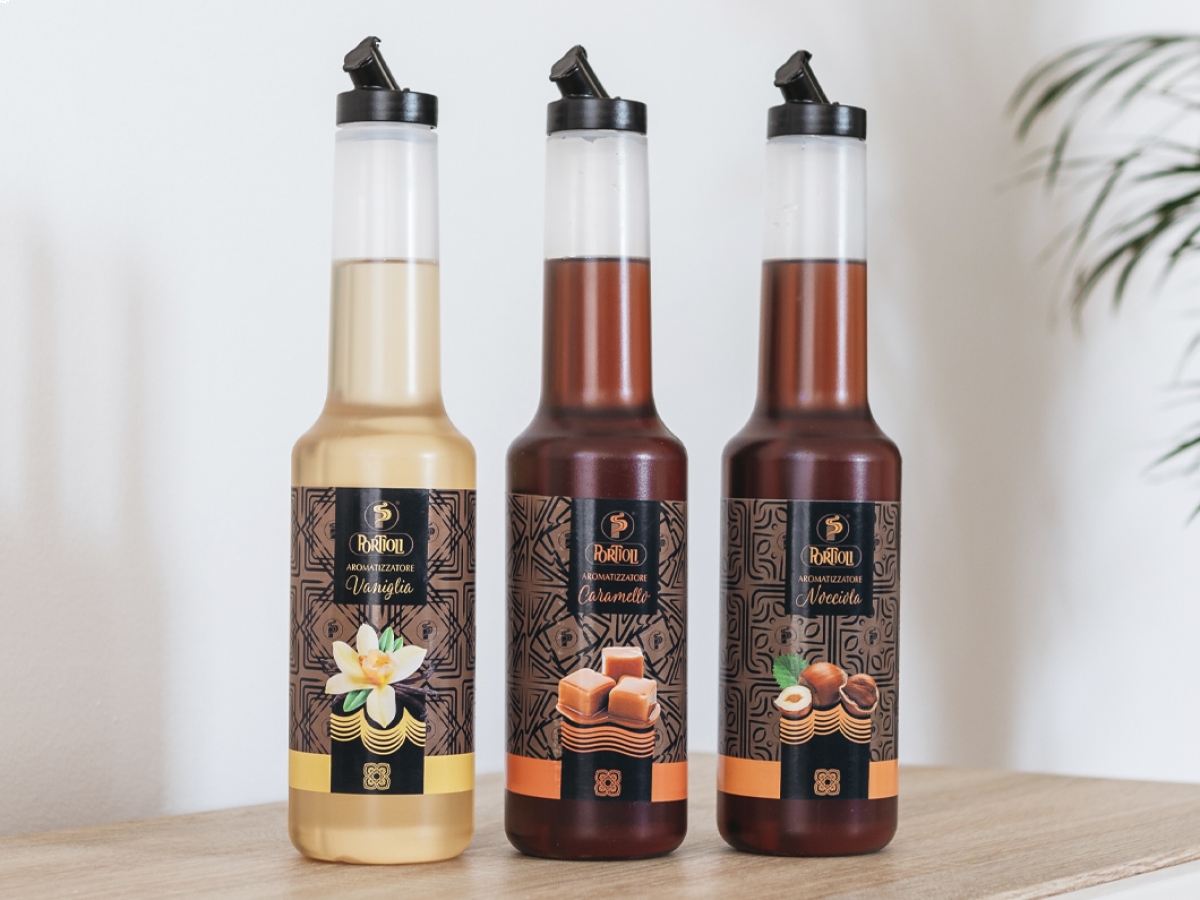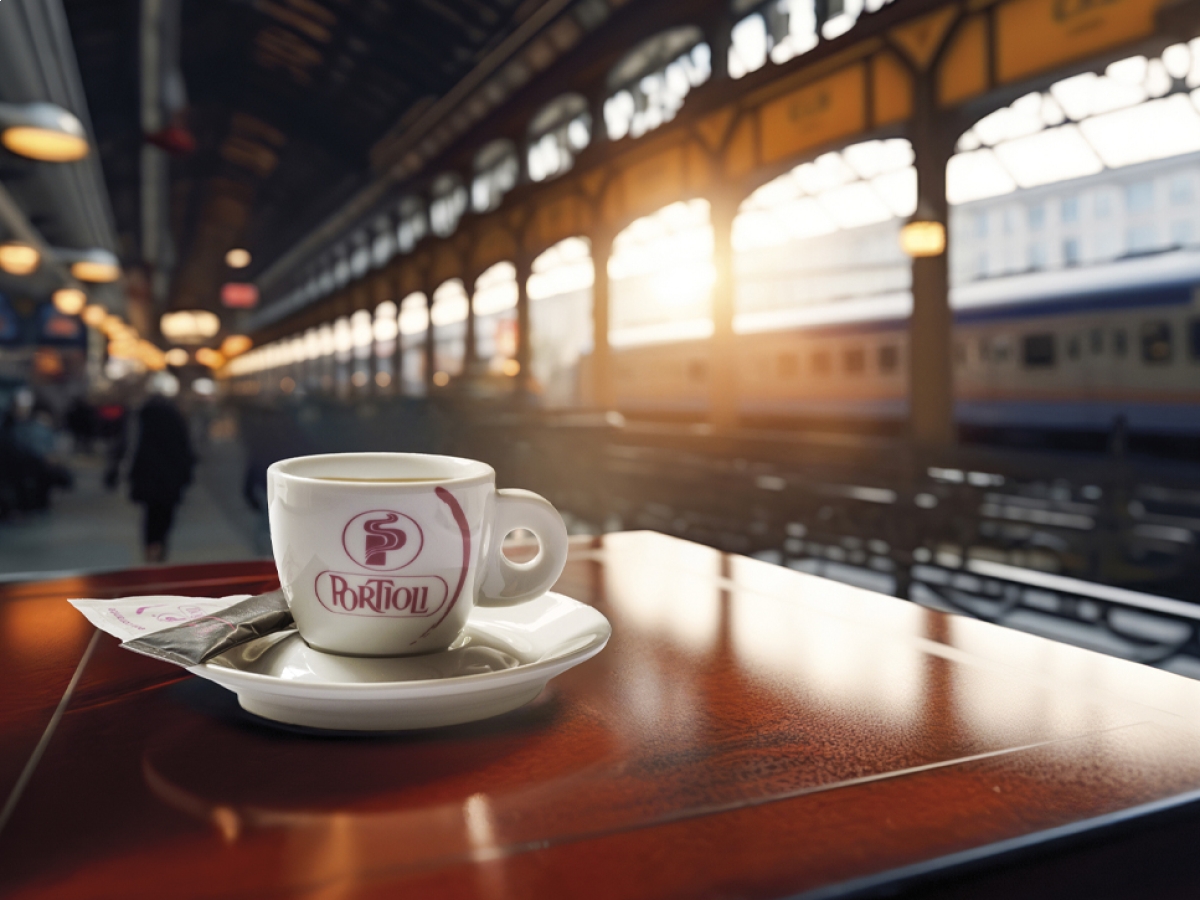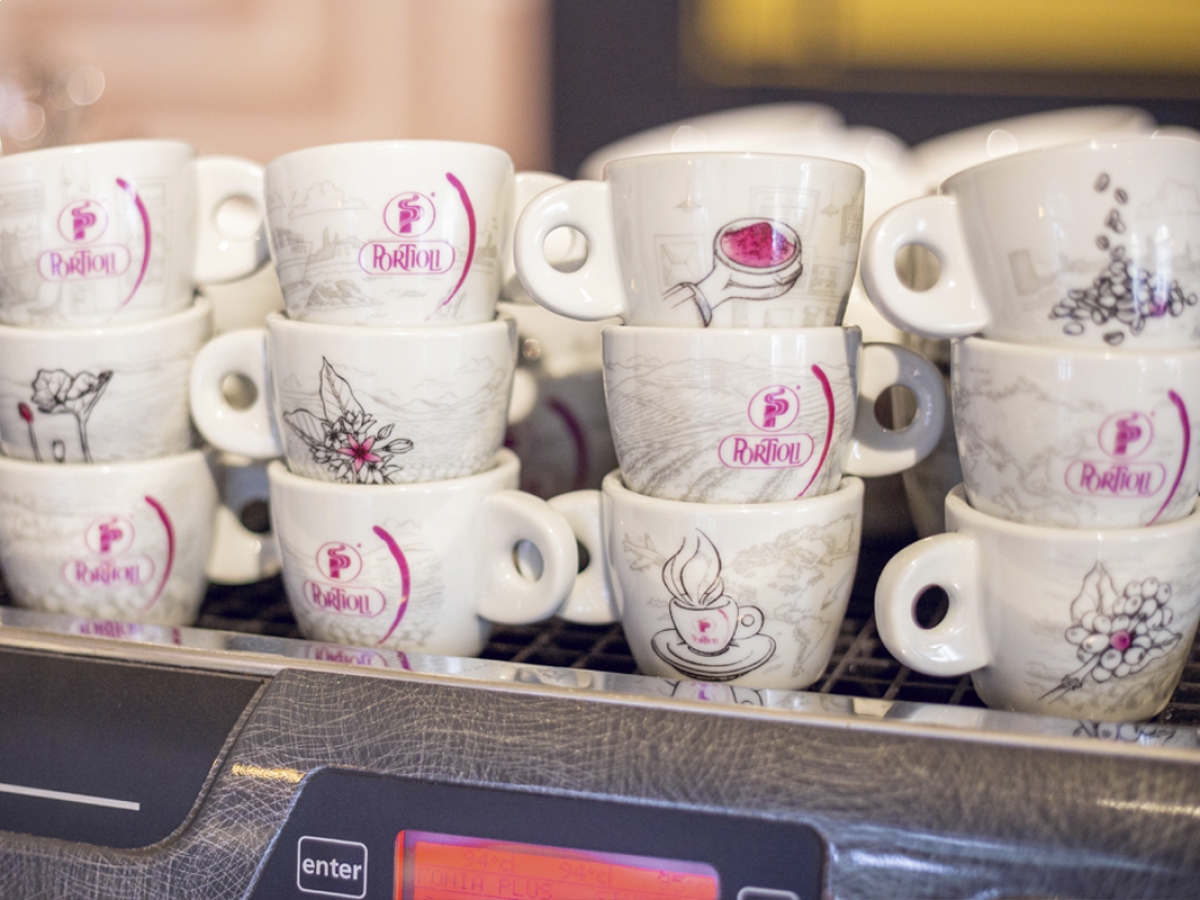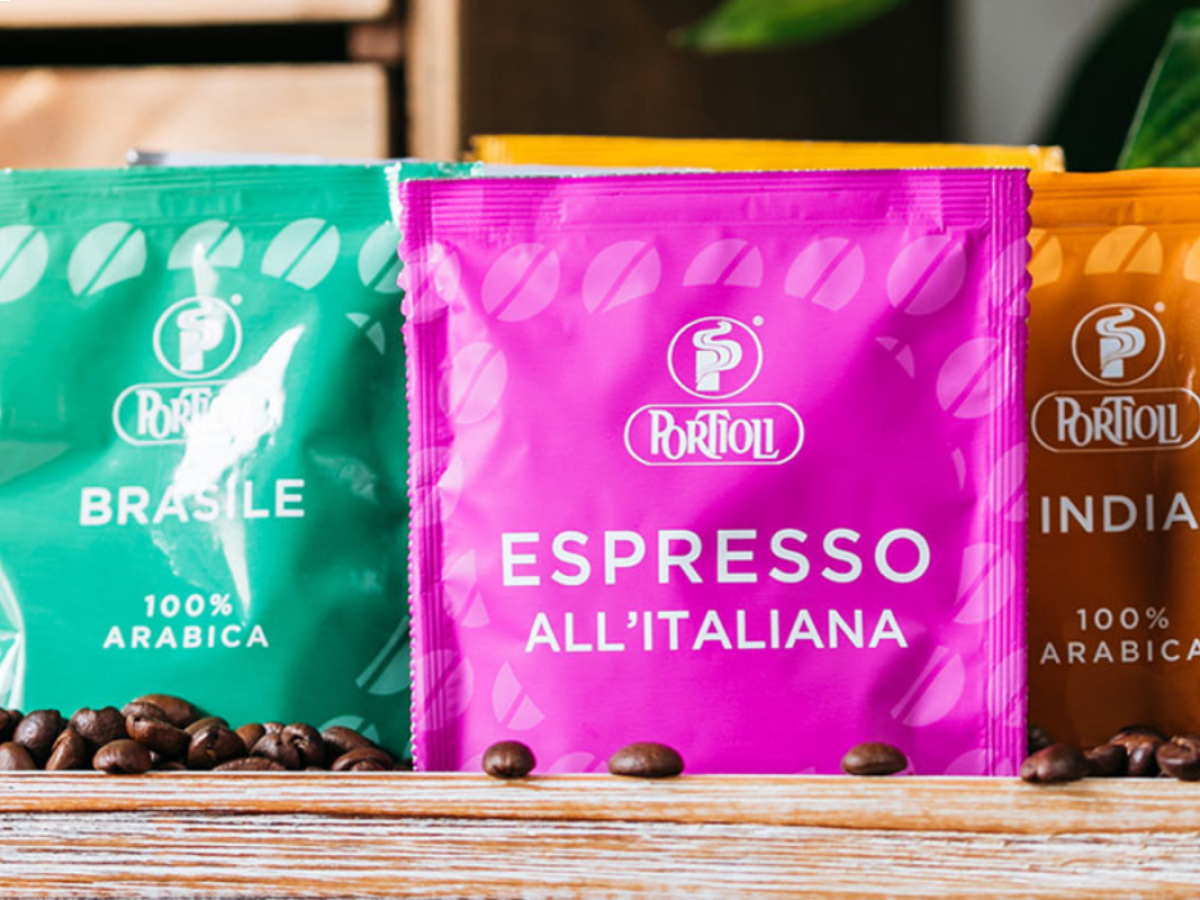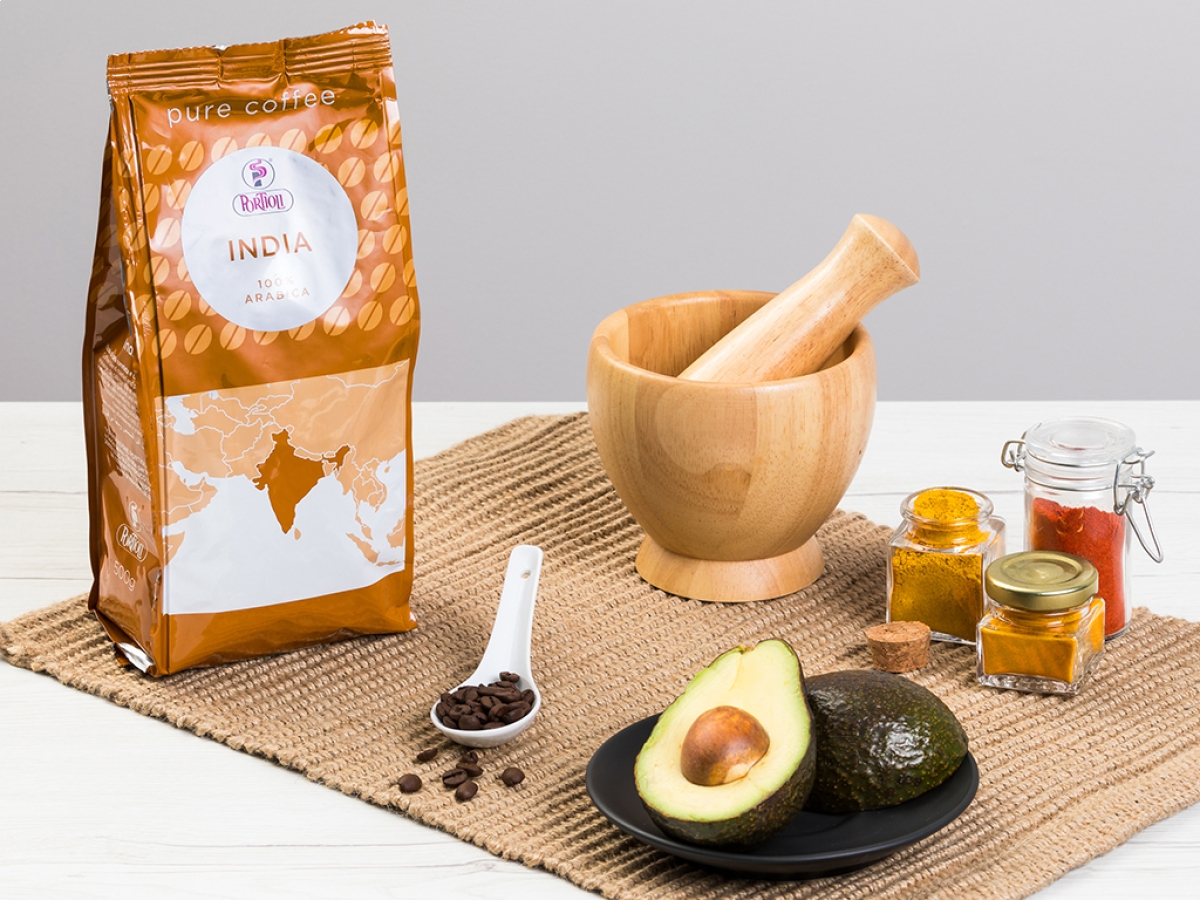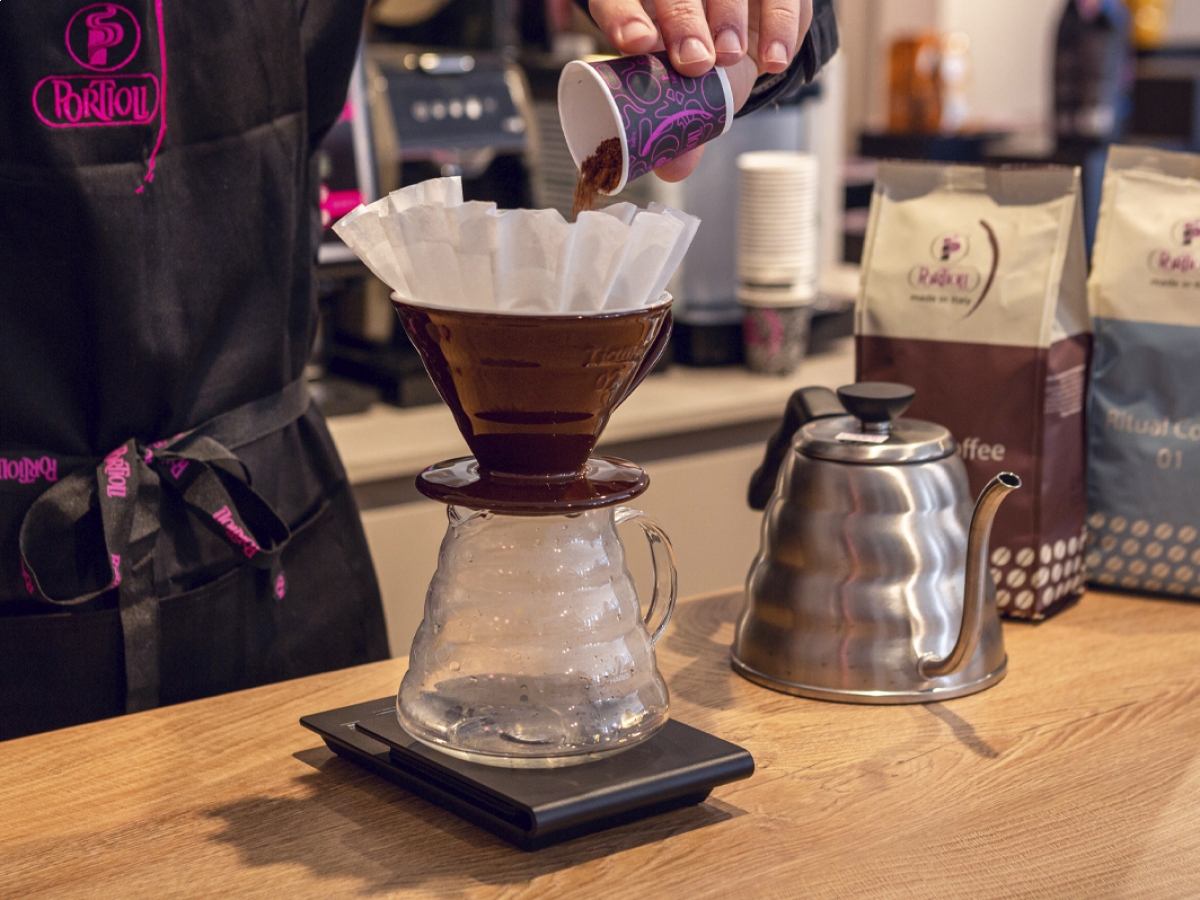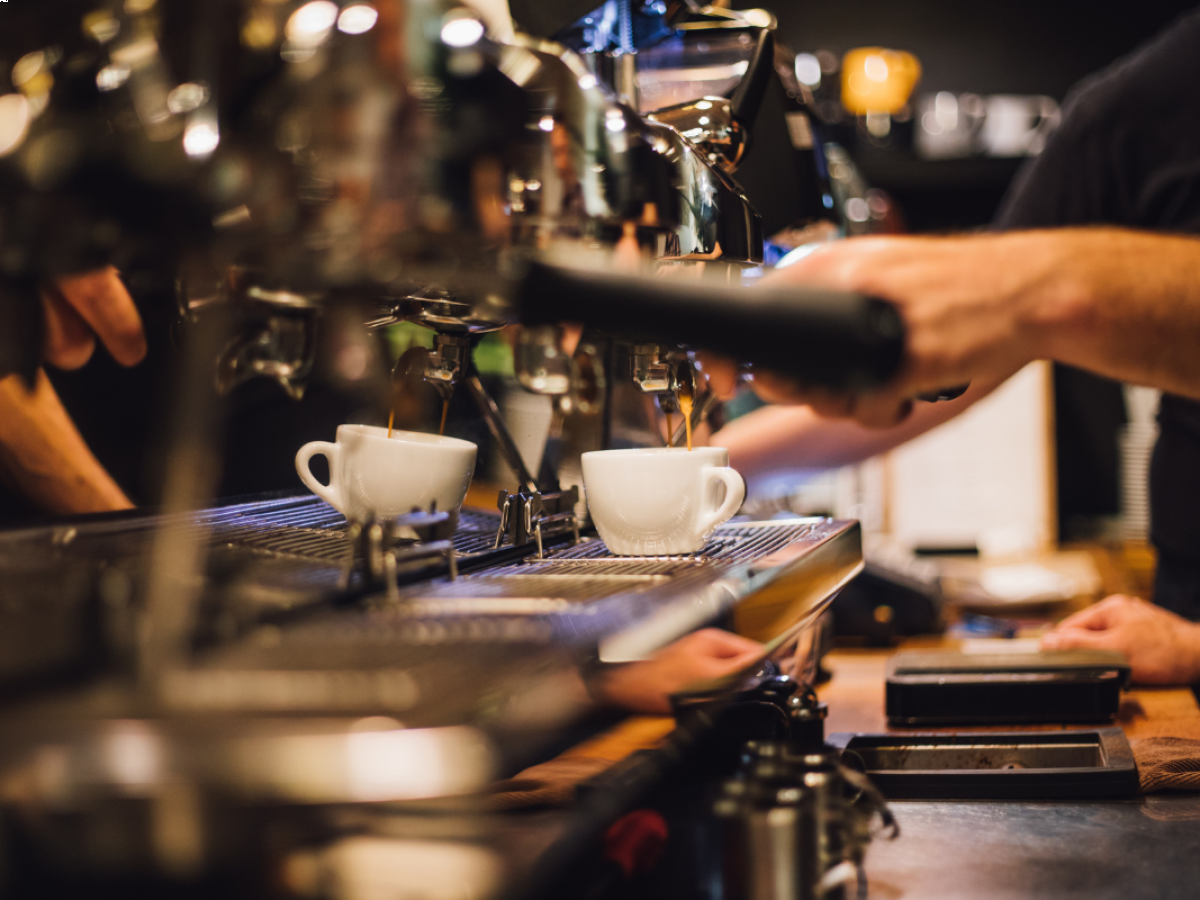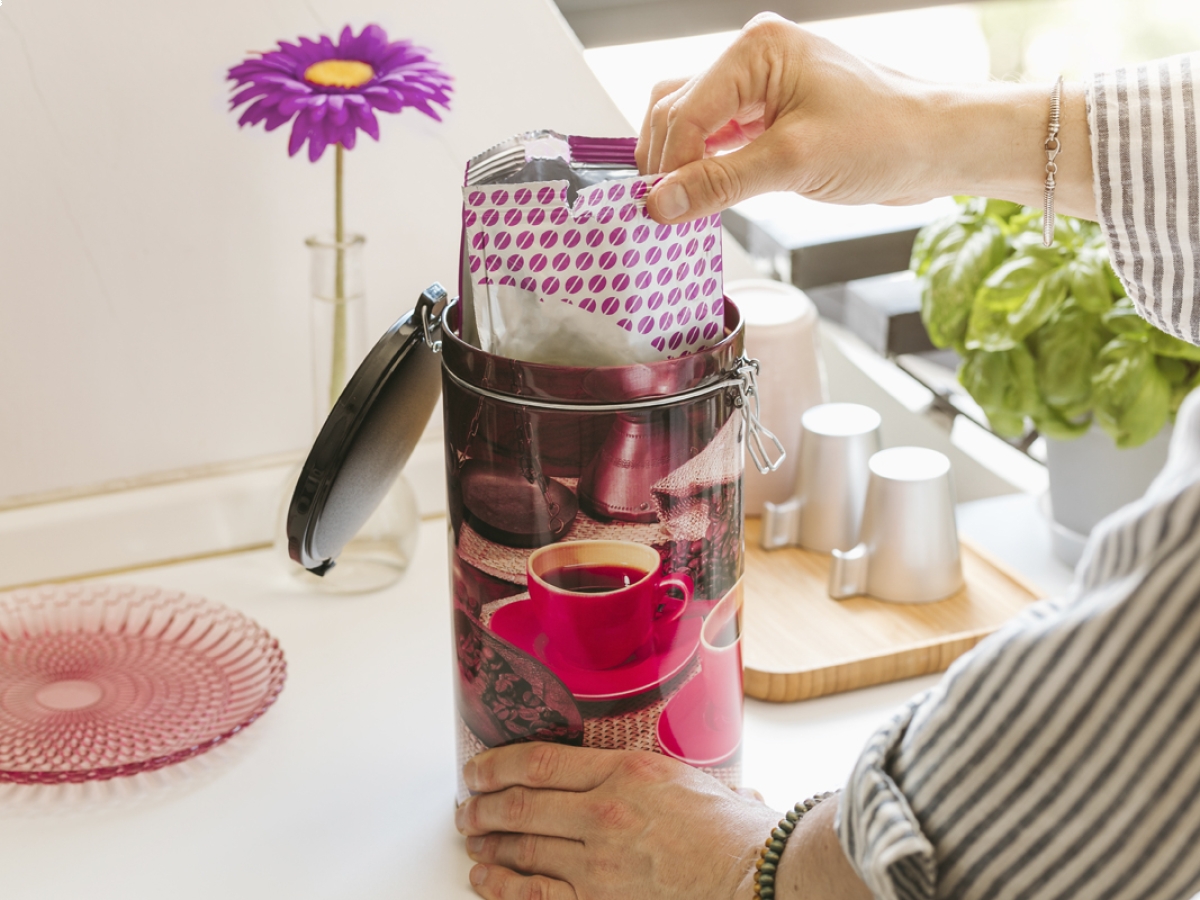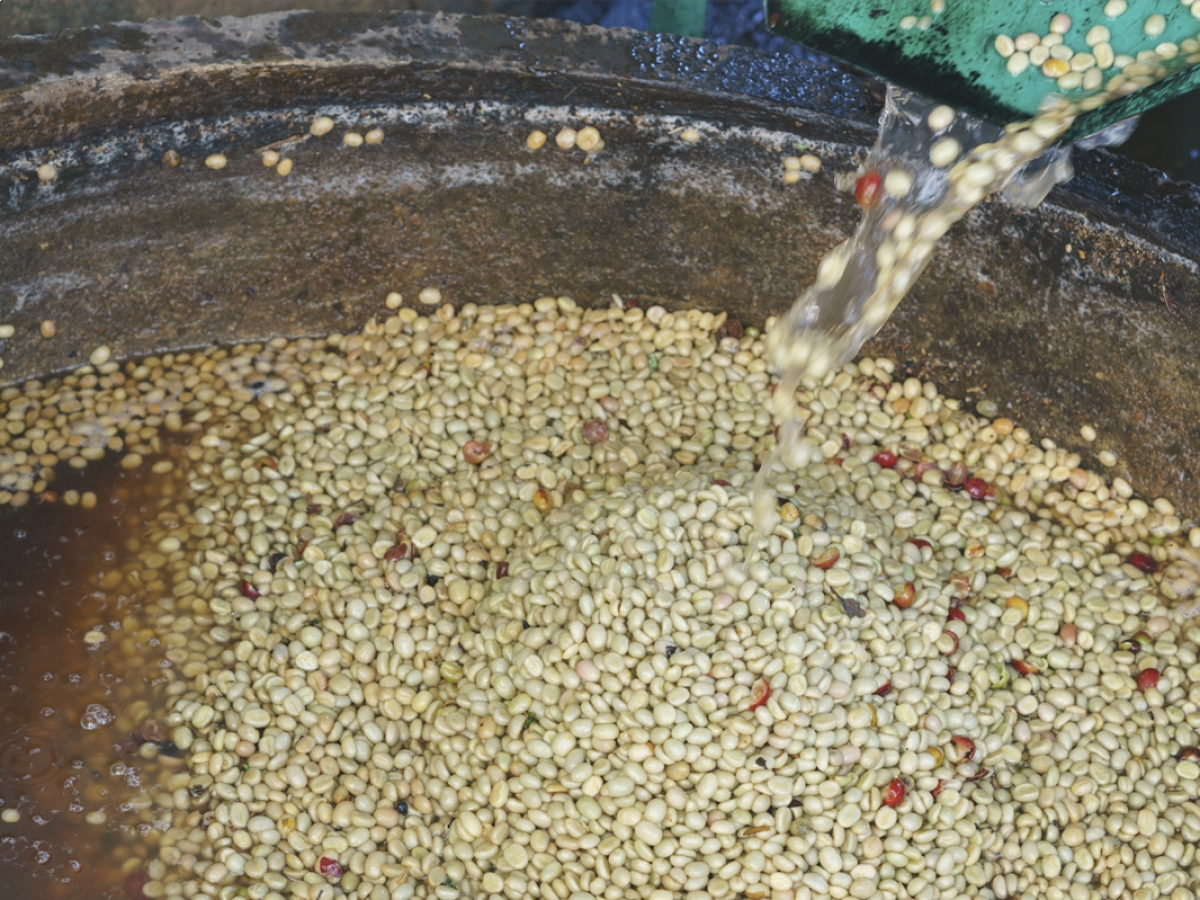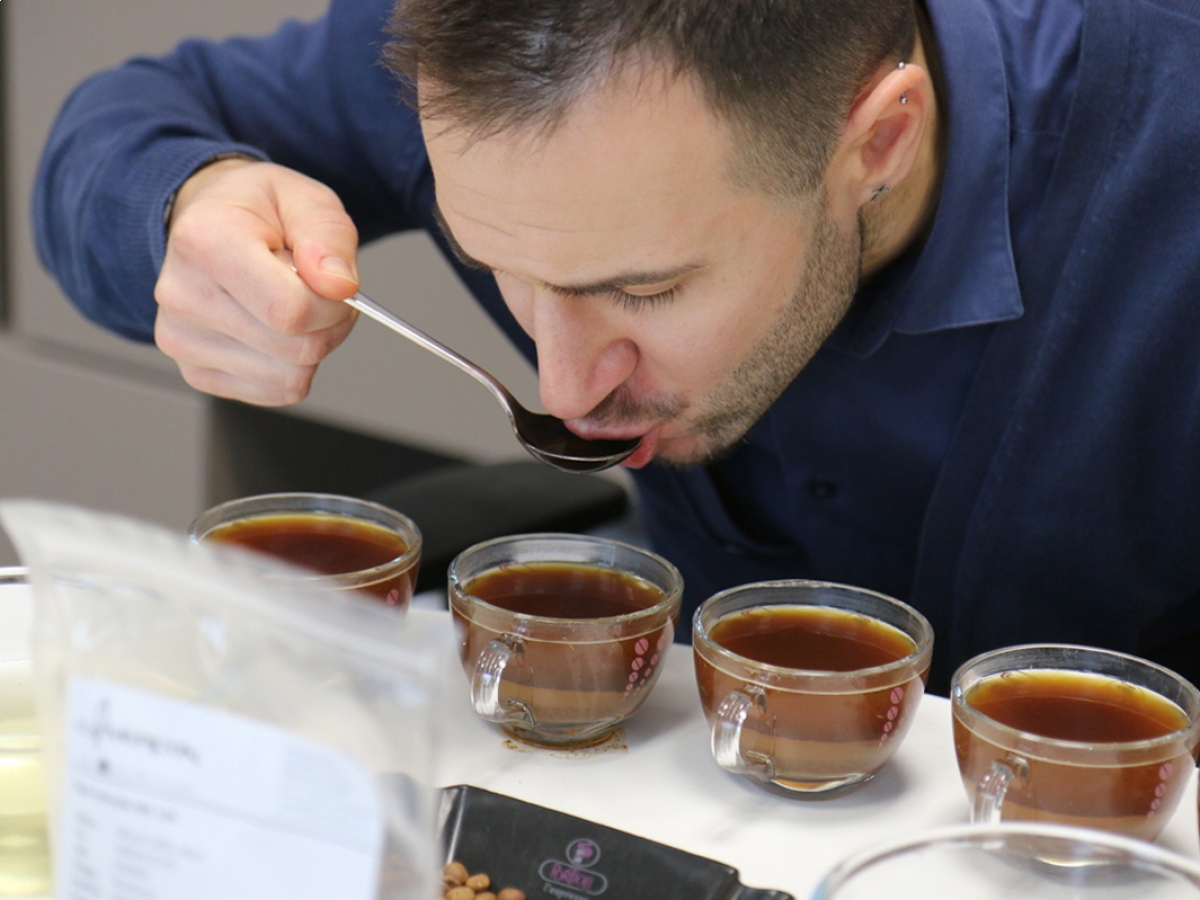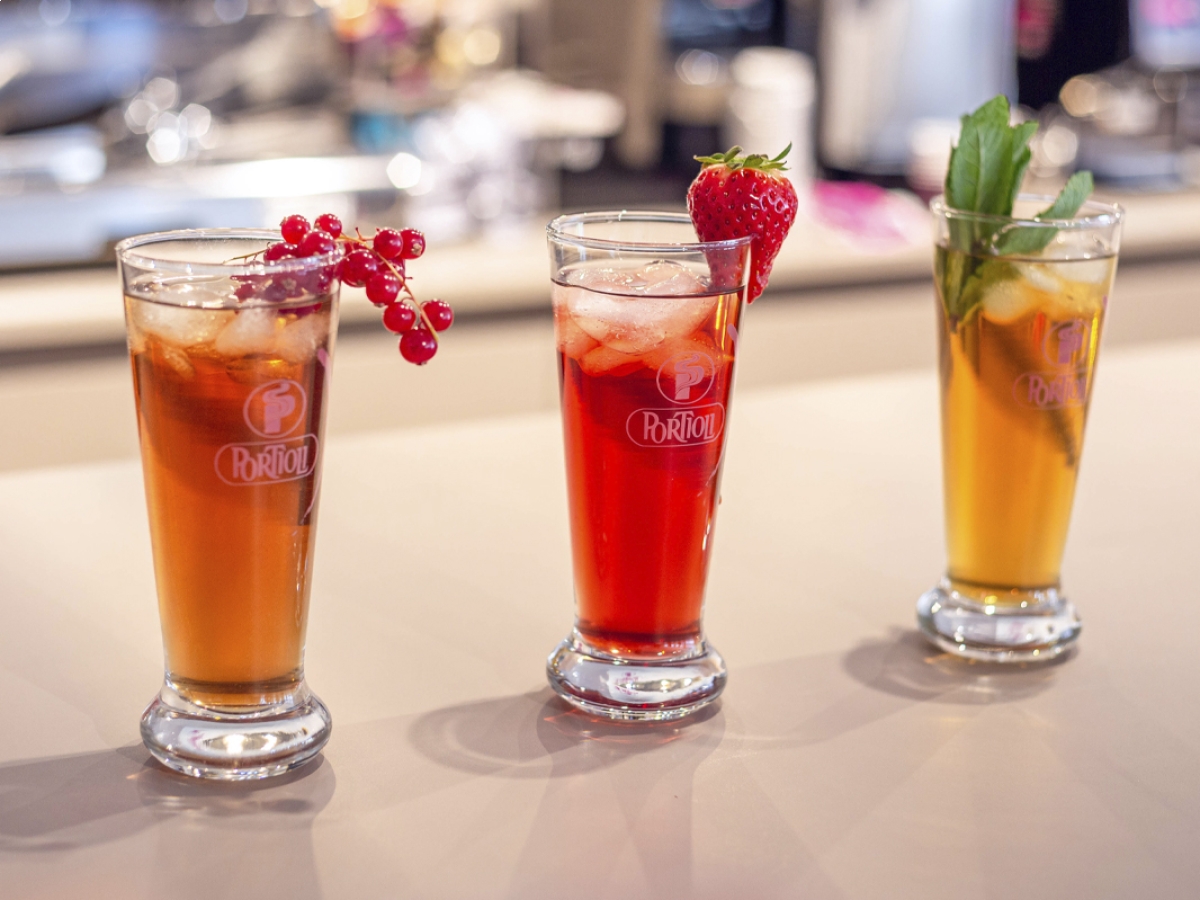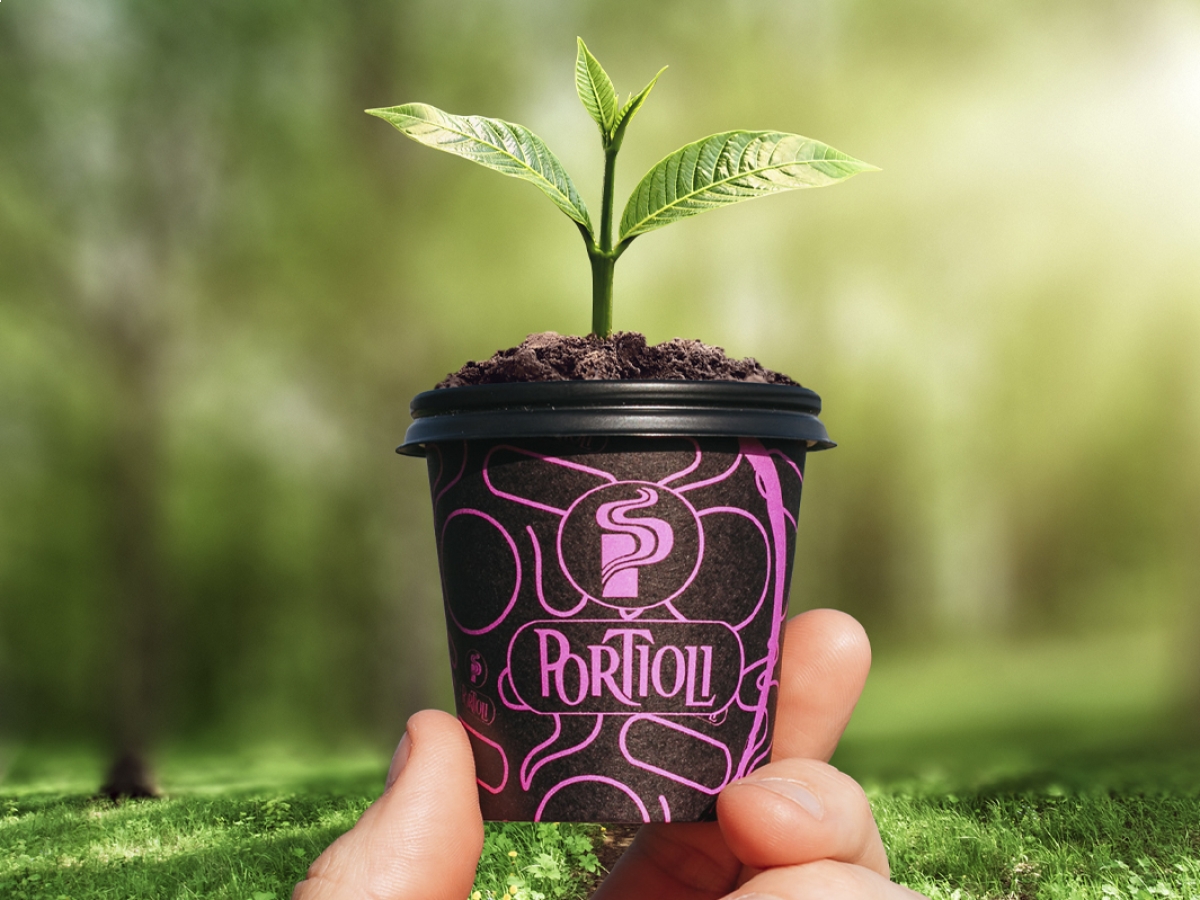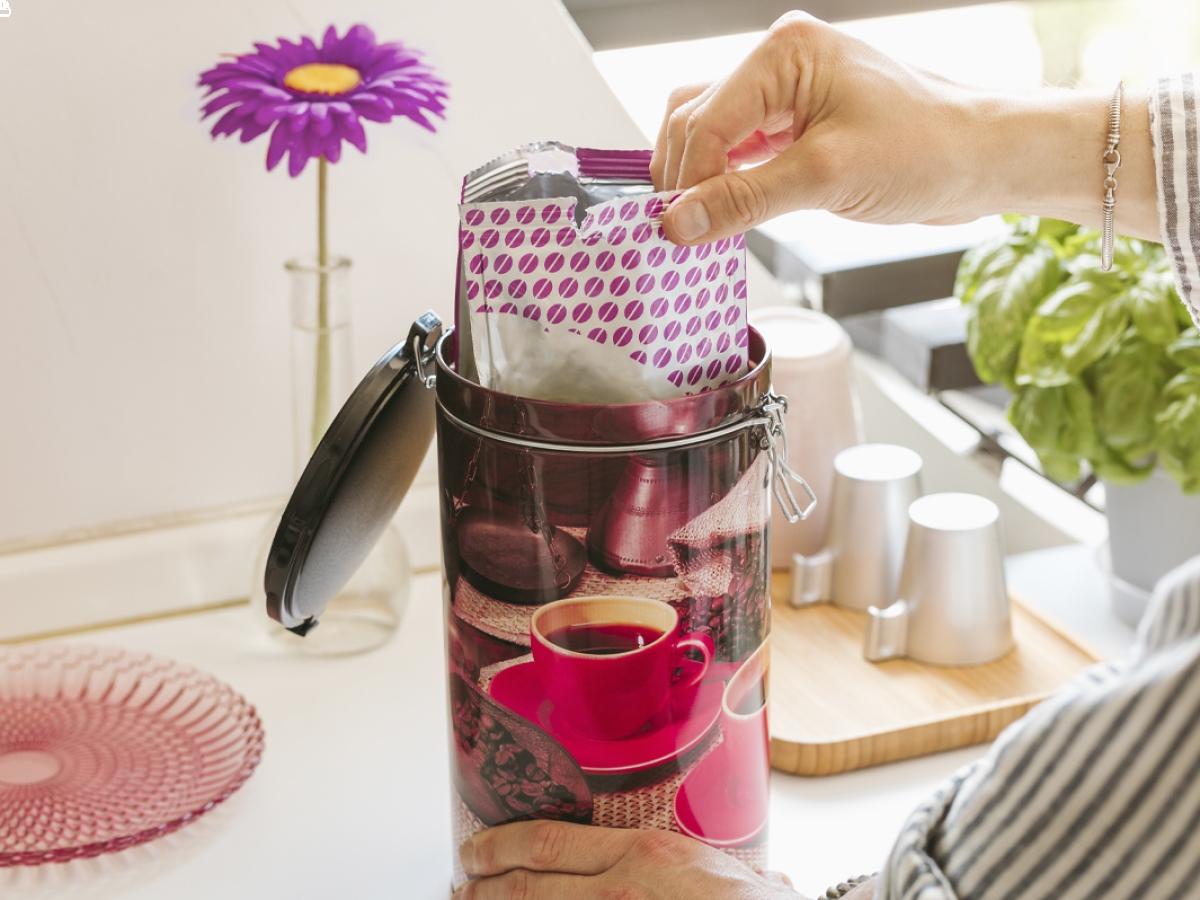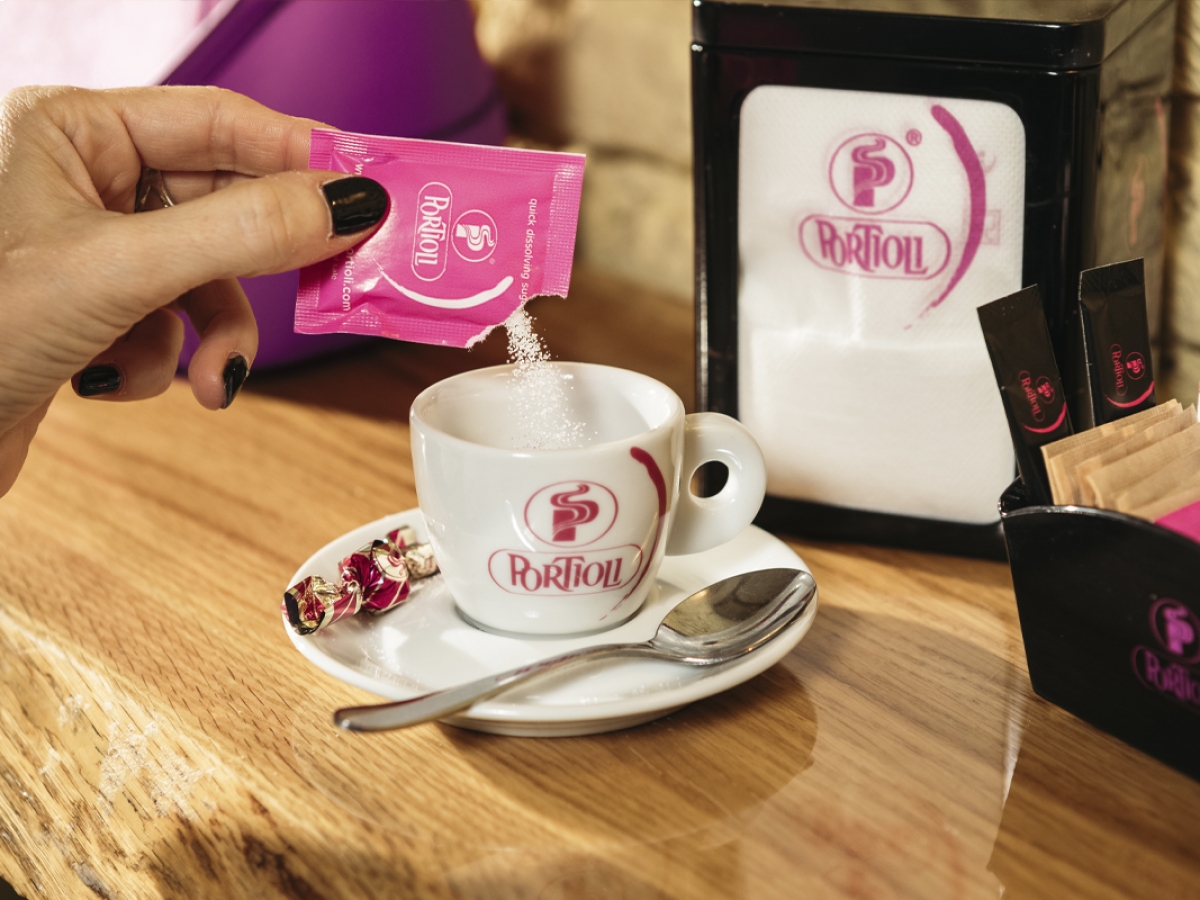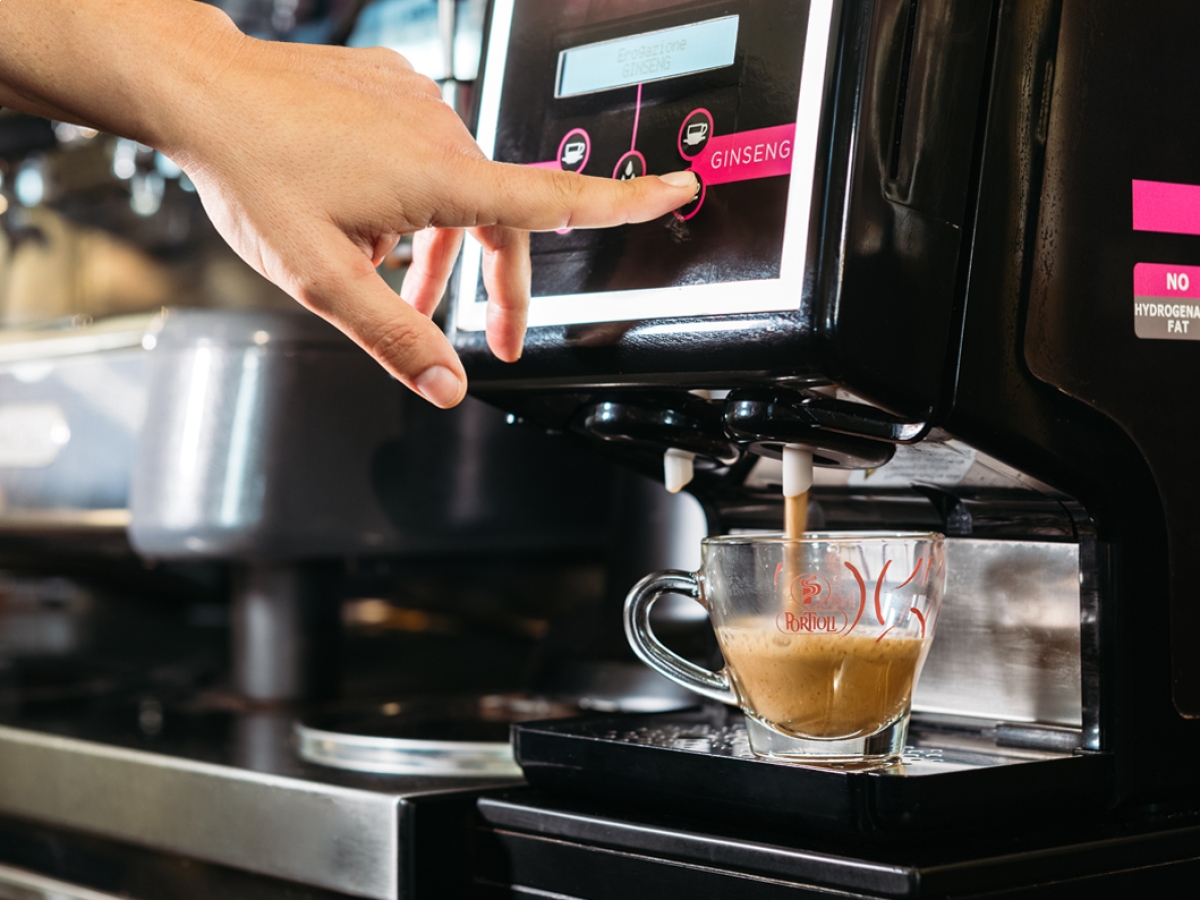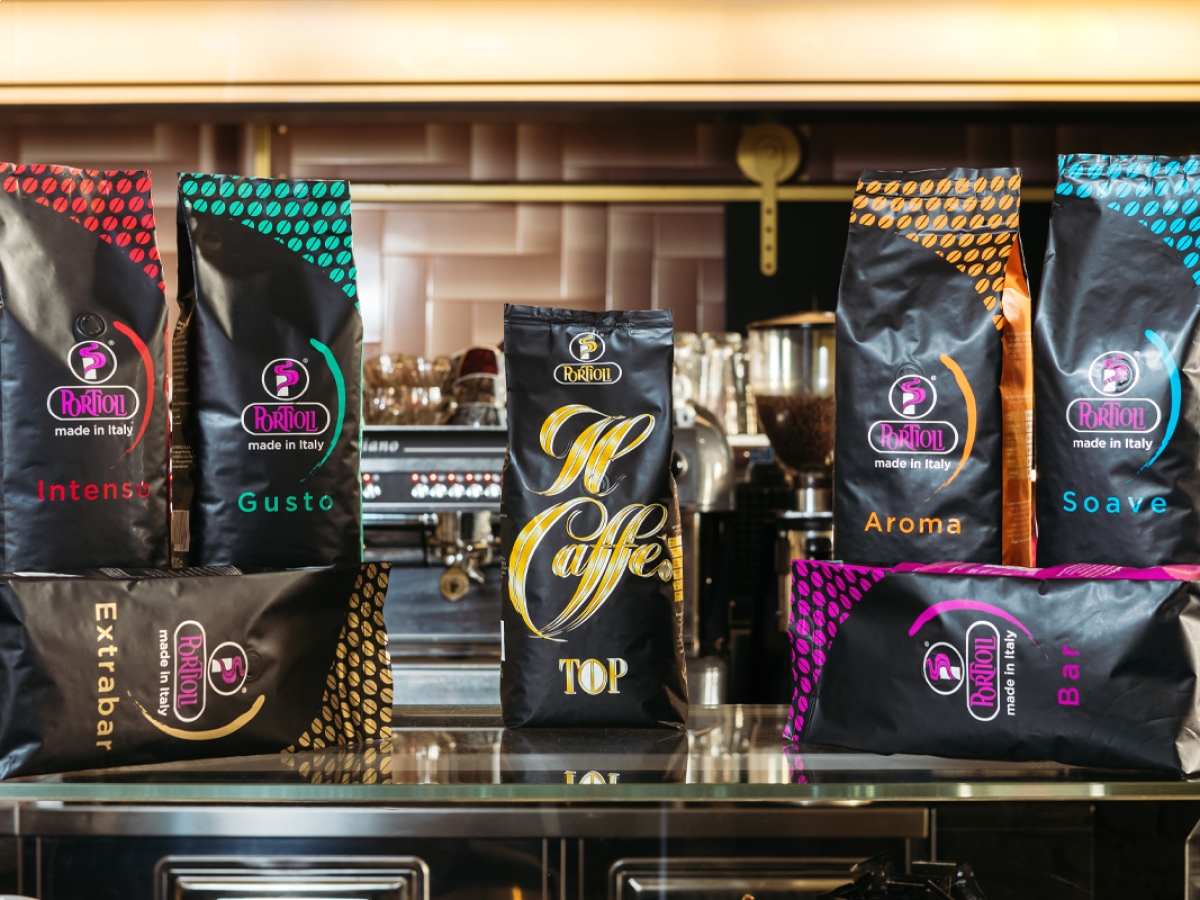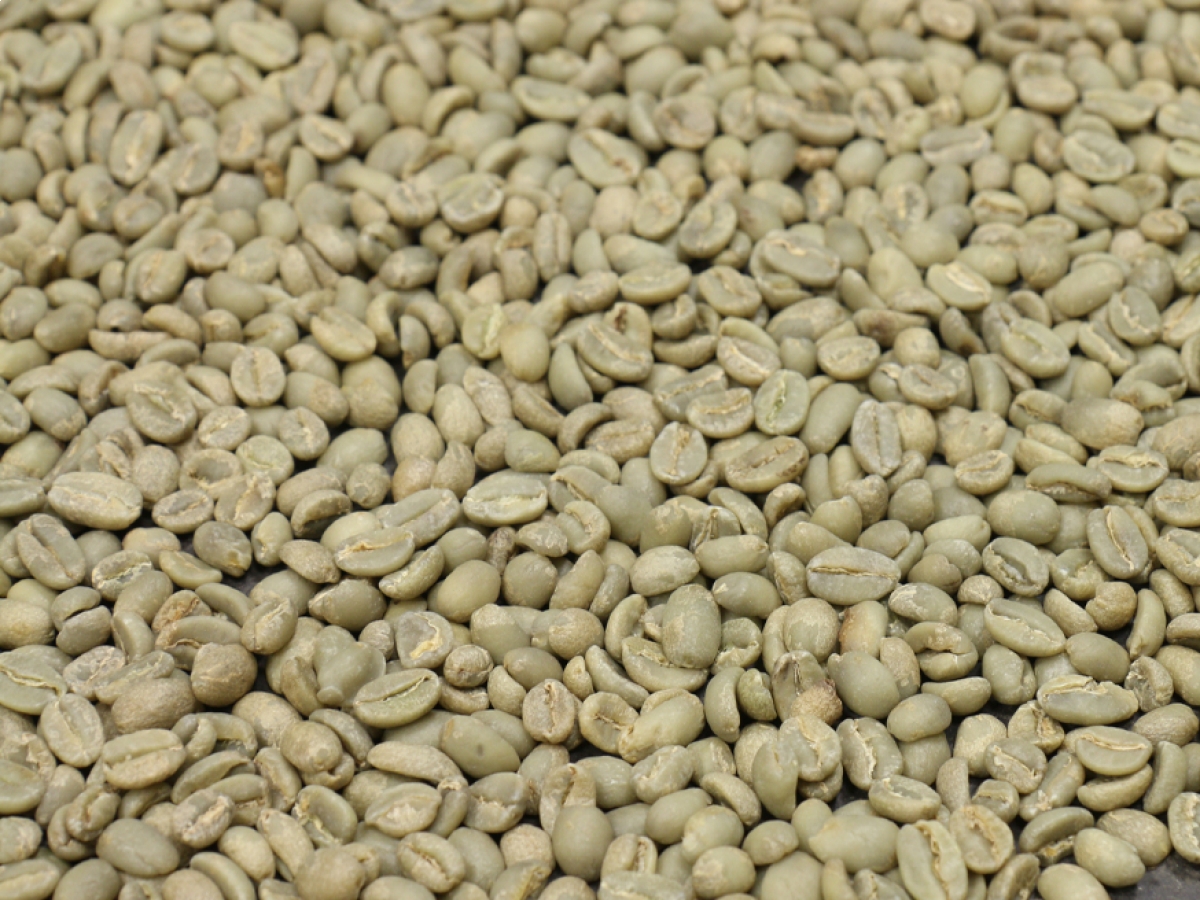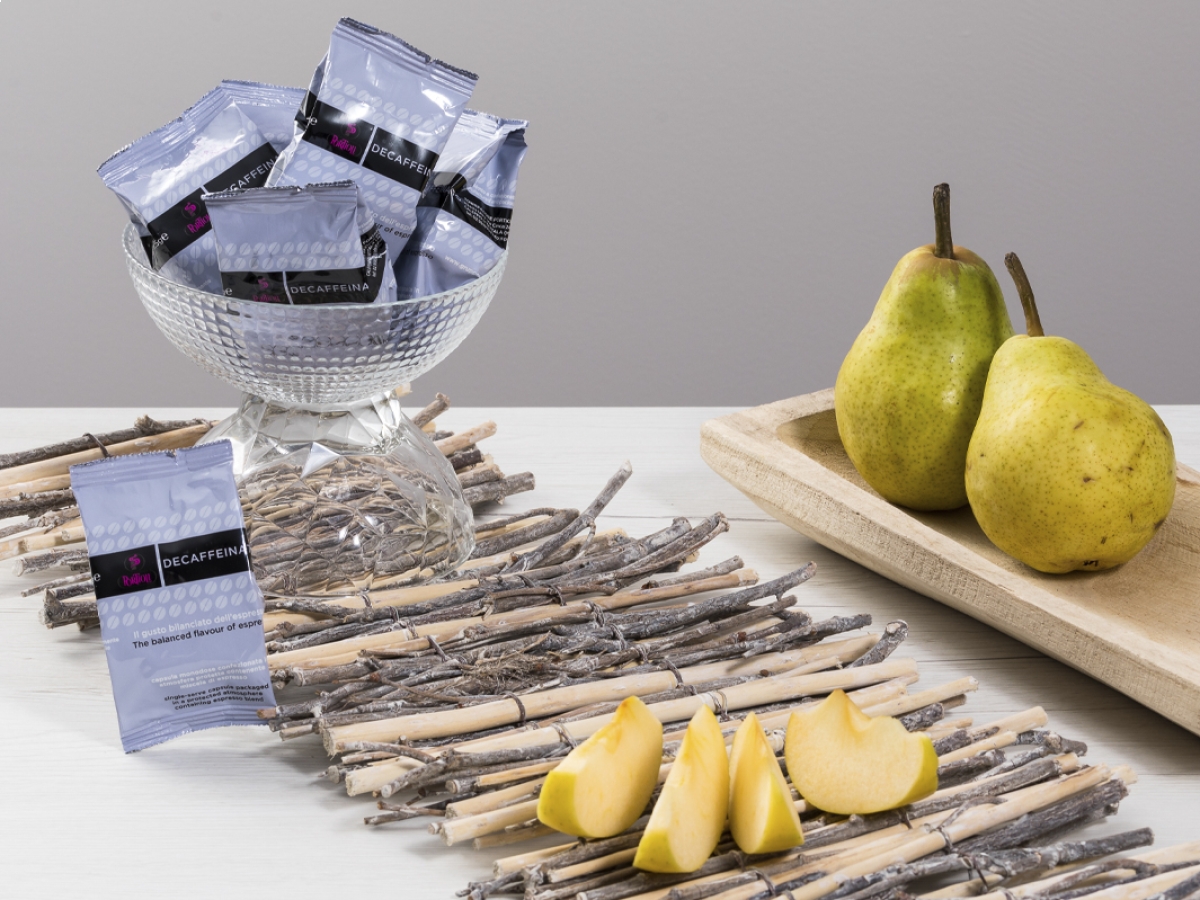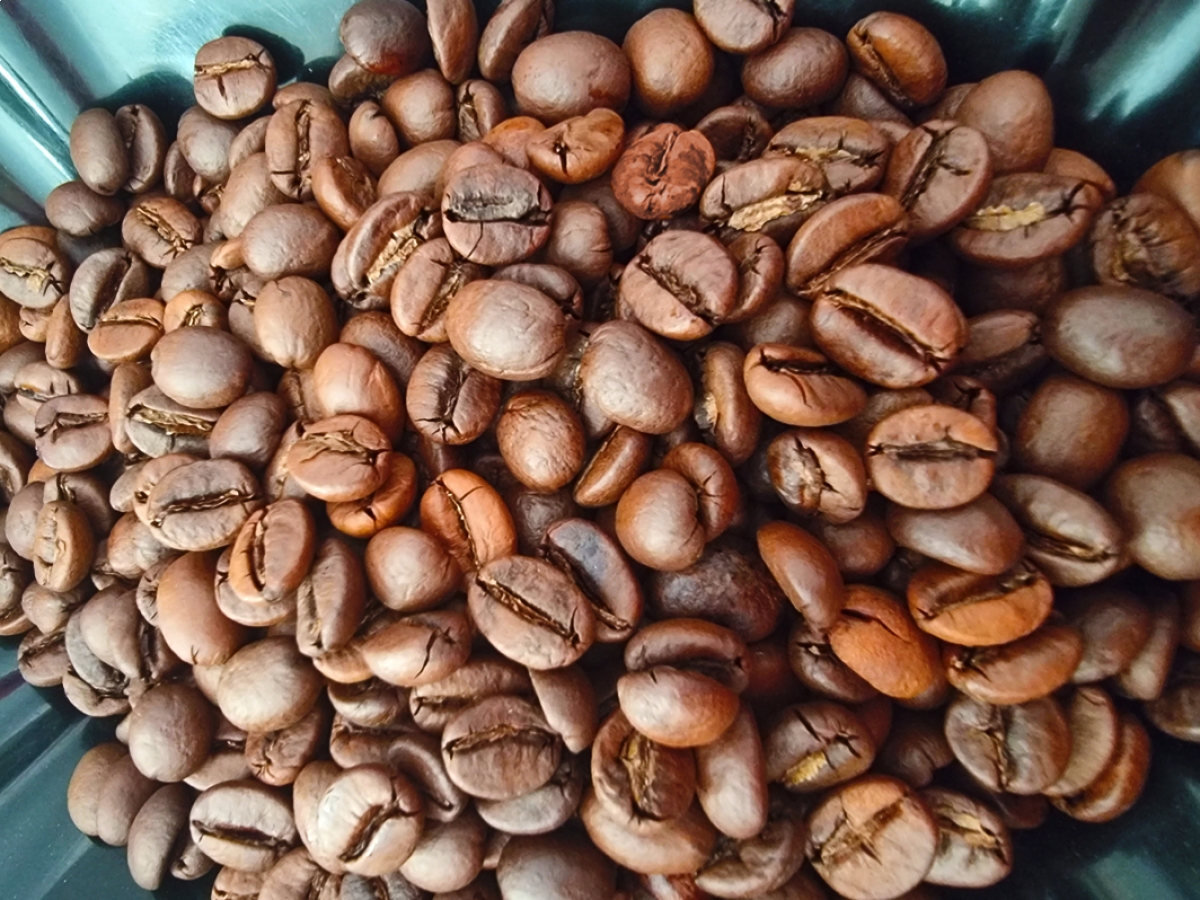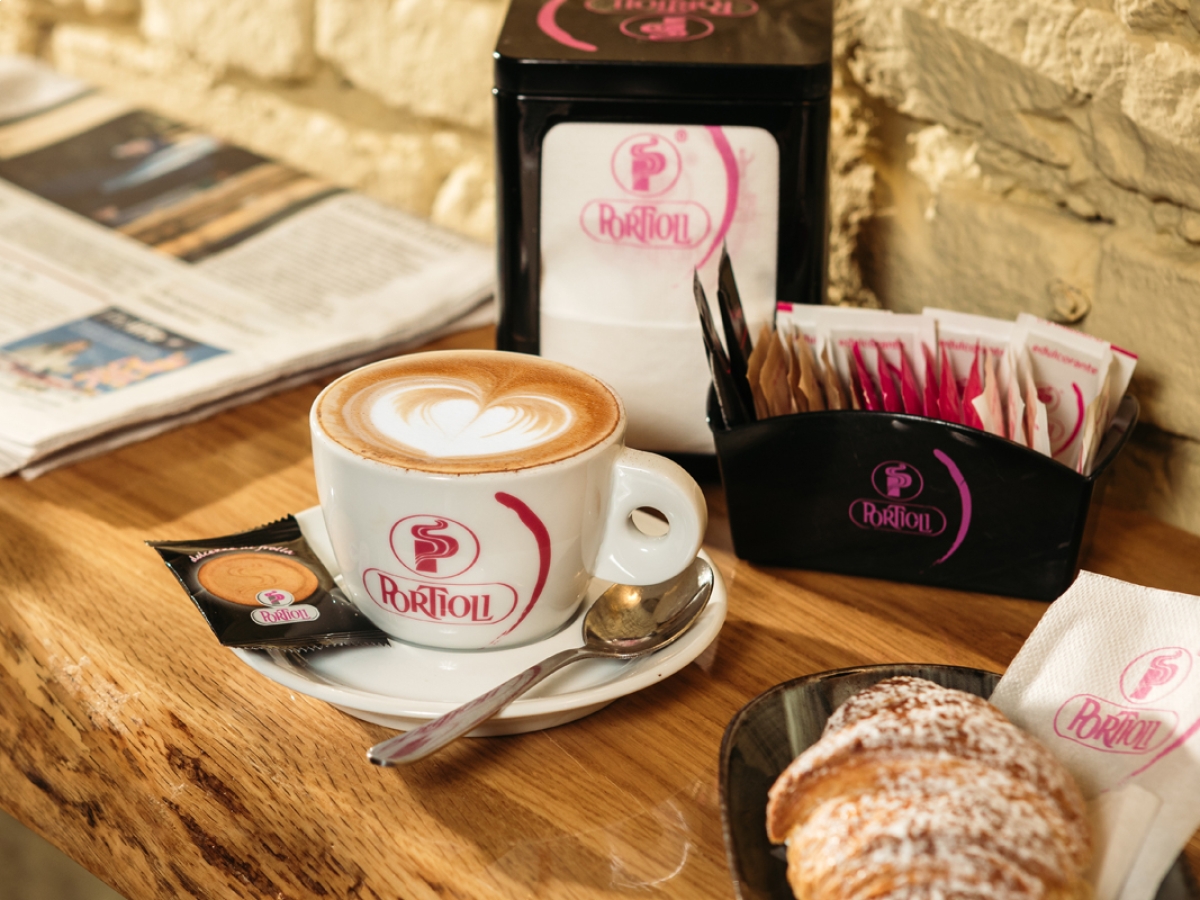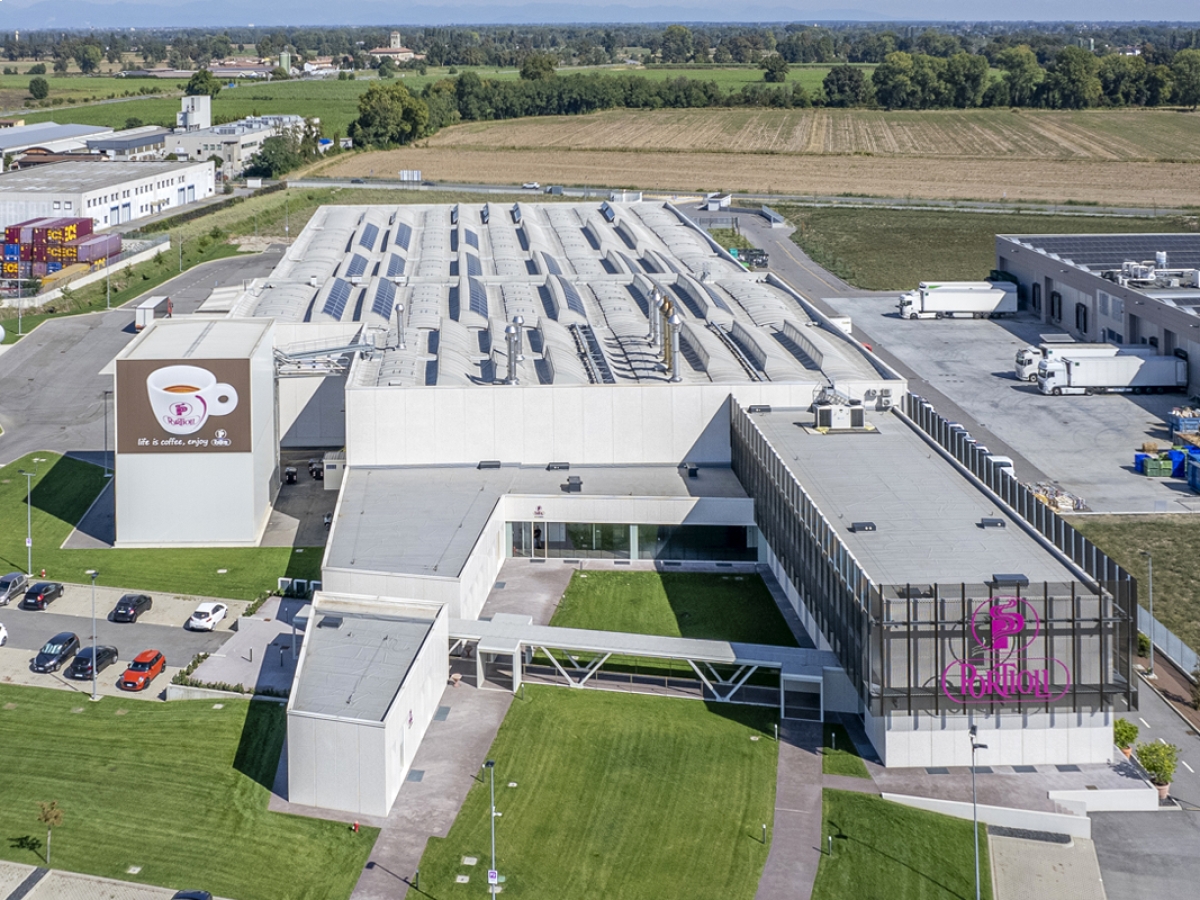
The story of Portioli coffee is one that has been talking about coffee and crossing generations for over 60 years. During this time, Torrefazione Portioli has been dedicated to producing coffee blends for the HO.RE.CA channel from the best qualities of Arabica and Robusta coffees. Our coffee is purchased from producing countries and roasted by single origin in order to obtain a blend with excellent organoleptic qualities.
In our way of producing and processing coffee, we exalt all stages of the production cycle, from the selection and cleaning of coffee, through roasting and blending to the packaging and storage of the blends.
Today our company produces and sells coffee all over the world and is unique not only in its pursuit of excellence, but also in the tradition of the best Made in Italy.
Sustainable coffee - The taste of coffee that respects the environment
The importance of ethical and environmentally sustainable coffee focuses on three main aspects: environment, local communities, and product quality.
First, ethical and environmentally sustainable coffee involves the adoption of environmentally friendly agricultural practices. This means, for example, reducing the use of pesticides and chemical fertilizers, recycling waste, using renewable energy sources, and preserving biodiversity. These practices help reduce the environmental impact of coffee on local flora and fauna, improving the sustainability of the entire production system.
Second, ethical and environmentally sustainable coffee takes into account the needs of the local communities involved in coffee production. This means ensuring the fair remuneration of workers, promoting their training and professional development, and respecting their basic human rights. In this way, local communities can benefit from coffee production and improve their quality of life.
Third, ethical and environmentally sustainable coffee ensures product quality, which is critical to consumer satisfaction and company reputation. This means adopting high-quality coffee processing practices, ensuring that coffee is grown and processed in a way that preserves its organoleptic characteristics and distinctive flavours.
The choice of coffee origins and the relationship with producers
Coffee sustainability is an issue at all stages of its production, from cultivation to processing and distribution. However, one of the most important aspects of ensuring coffee sustainability is the choice of coffee origins and the relationship with producers.
The choice of coffee origins is critical to ensuring the sustainability of production. Coffees from geographic areas where sustainable and environmentally friendly agricultural practices are used can help preserve biodiversity, reduce the environmental impact of cultivation, and ensure long-term production.
The relationship with producers is equally important. A relationship of collaboration and mutual respect between producers and suppliers can help ensure the sustainability of coffee production. This relationship can include fair remuneration for producers, training and support to improve farming practices and product quality, and access to markets.
In addition, a collaborative relationship can foster the development of sustainable coffee production initiatives, such as growing organic coffee, promoting regenerative farming practices, and adopting innovative technologies to reduce the environmental impact of cultivation.
Coffee sustainability is not only about production, but also about distribution and consumption. Retailers can help ensure coffee sustainability through the promotion of ethical and environmentally sustainable coffees and the choice of sustainable packaging.
Consumers can also contribute to coffee sustainability through choosing sustainably grown products, supporting producers and sustainable production initiatives, and reducing coffee waste using energy-efficient coffee machines and choosing reusable cups.
Portioli sustainable initiatives to reduce environmental impact
As mentioned, Torrefazione Portioli puts a focus on the environment, and several initiatives have been put in place at the company's plant to reduce the environmental impact of the coffee supply chain. Let us see together what they are.
Featuring about 13,000sqm of green area, in which there are also 100 native plants, the Portioli plant represents a production heart perfectly integrated with the surrounding natural landscape. The plant was conceived and designed to have the lowest expected consumption and minimum load on public networks. Water for firefighting, toilets and more generally for drinking comes from aqueduct in compliance with current regulations.
The building is fully insulated and is in energy class A2 in order to minimize energy consumption. Even the unheated rooms have been insulated in order to achieve minimum waste of passive inputs as well. The production and storage areas were built with large transparent surfaces on the roof, openable and all facing north in order to optimize lighting with fully zenithal light while minimizing the use of artificial lighting.
The exposure of the mirrors, on the other hand, was chosen to optimize climate control; in fact, the north-facing openings are never irradiated, so the contribution of radiation to space heating is minimal. Many of the mirrors can be opened to create a natural "chimney effect" in warm seasons. All office areas are air-conditioned with electricity, which is counted among the most sustainable sources. There is also a share of self-generation with a 100kWp photovoltaic system installed on the roof.
Conduits have been set up in the garage of company vehicles for possible implementation of electric charging facilities for vehicles with a view to future purchase. Waste sorting collection is carried out for waste management.
The use of plastic in the production of our coffee bags has decreased. A different polyethylene blend is used that provides performance and strength, despite the decrease in thickness and therefore plastic.
Buying Portioli coffee blends today means buying ethical and environmentally sustainable coffee, good for customers and the environment.
Related articles
Portioli Express
Home and office shopping
Experience authentic Italian espresso right at home with our premium blends in a variety of formats.
Go to the shop










